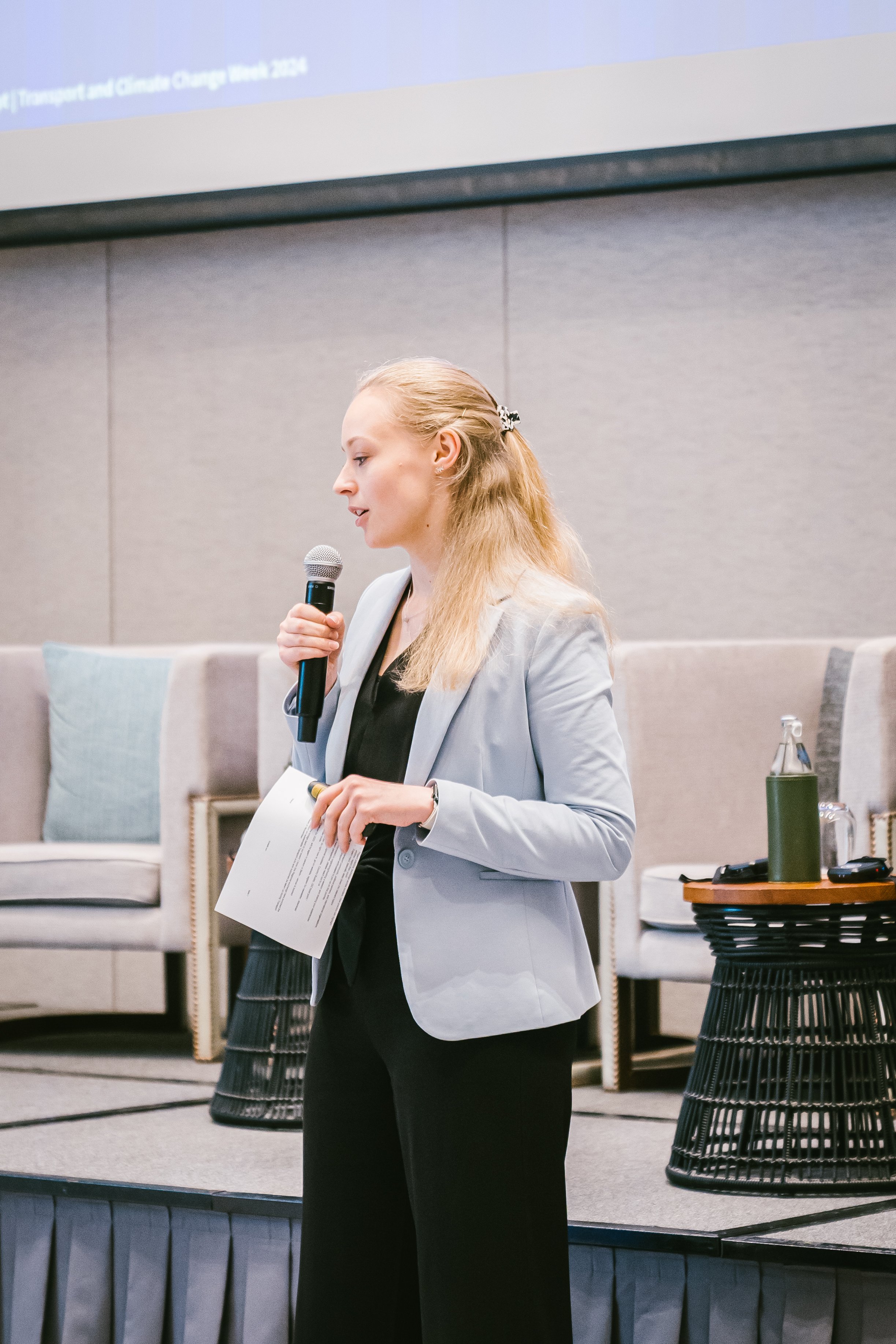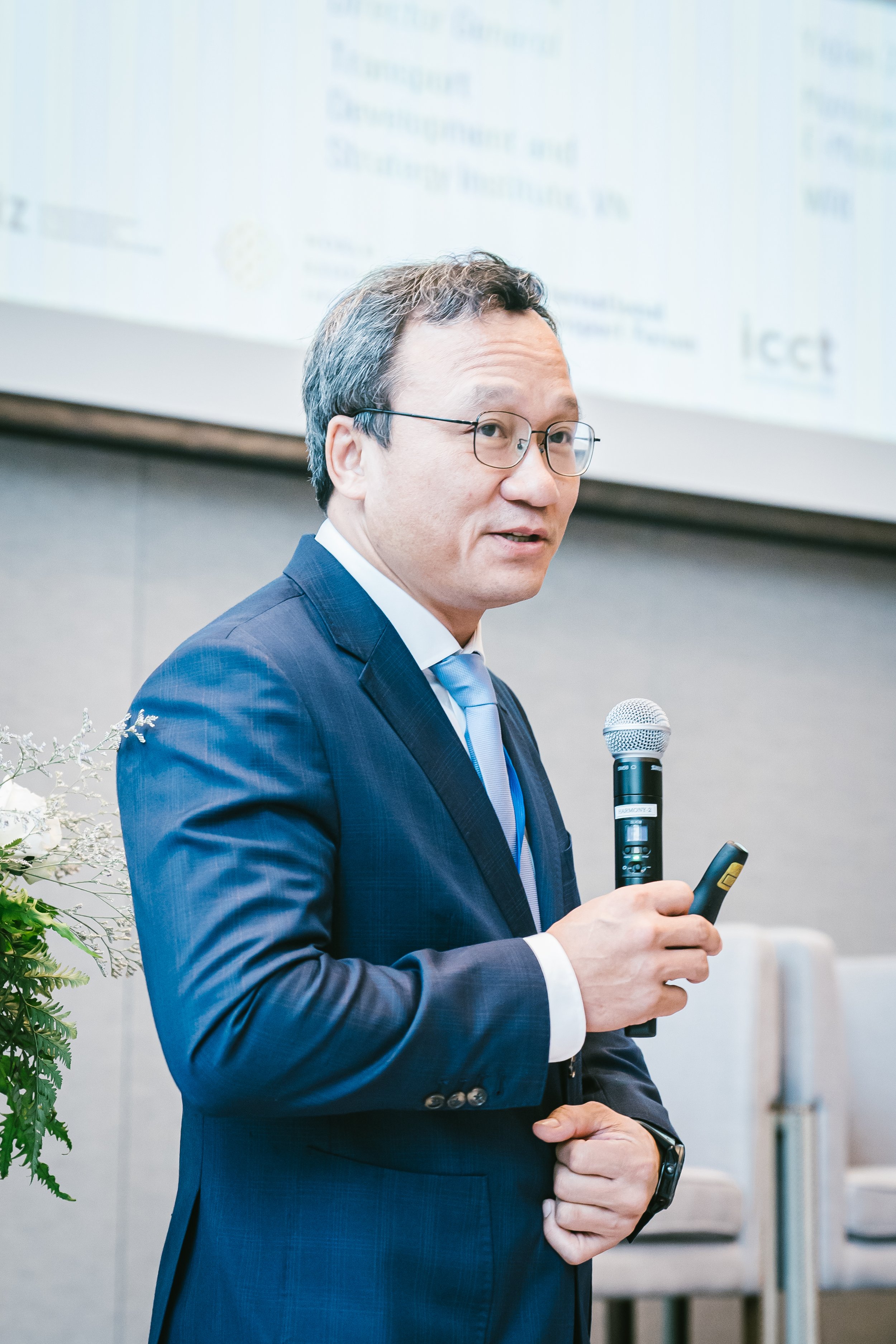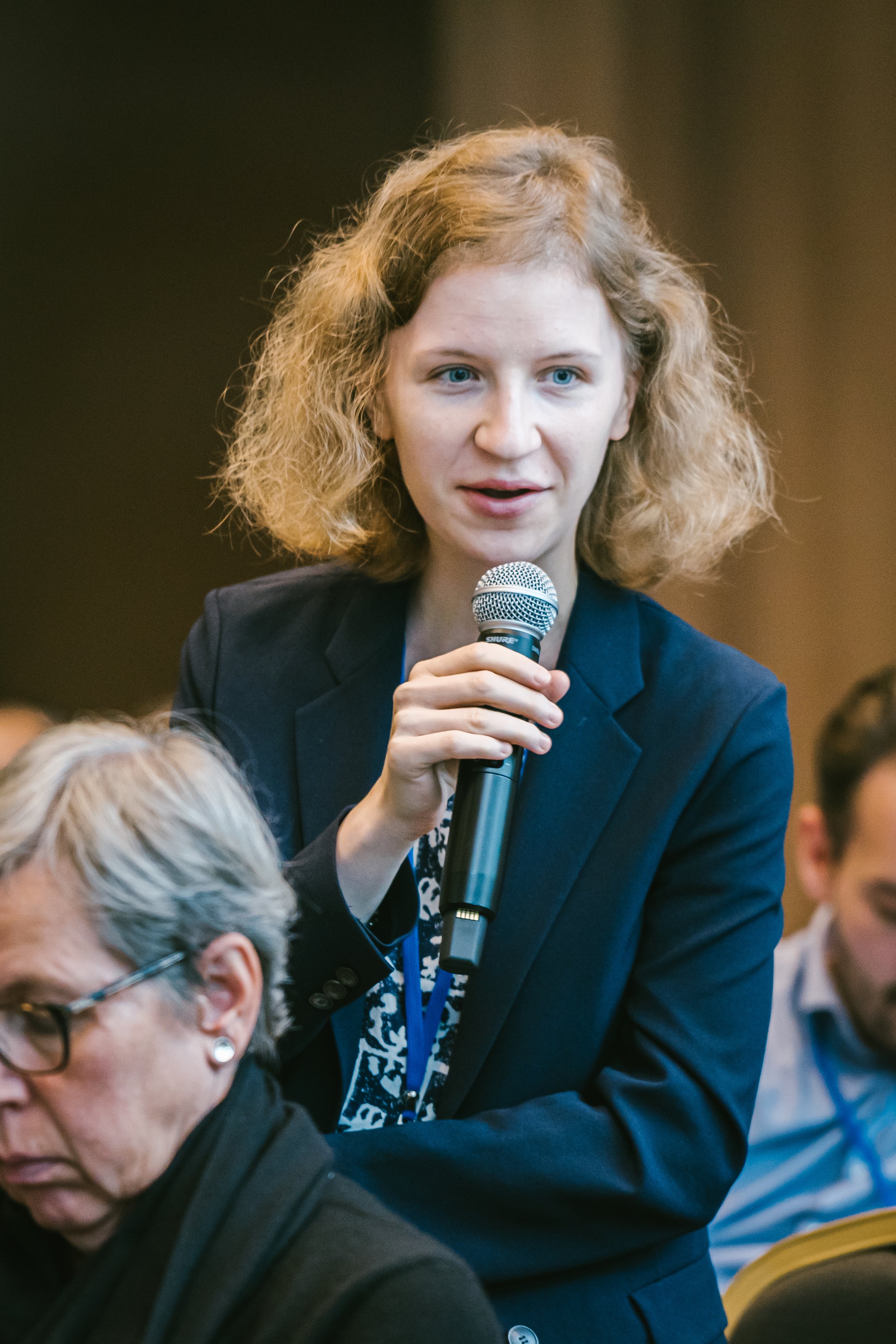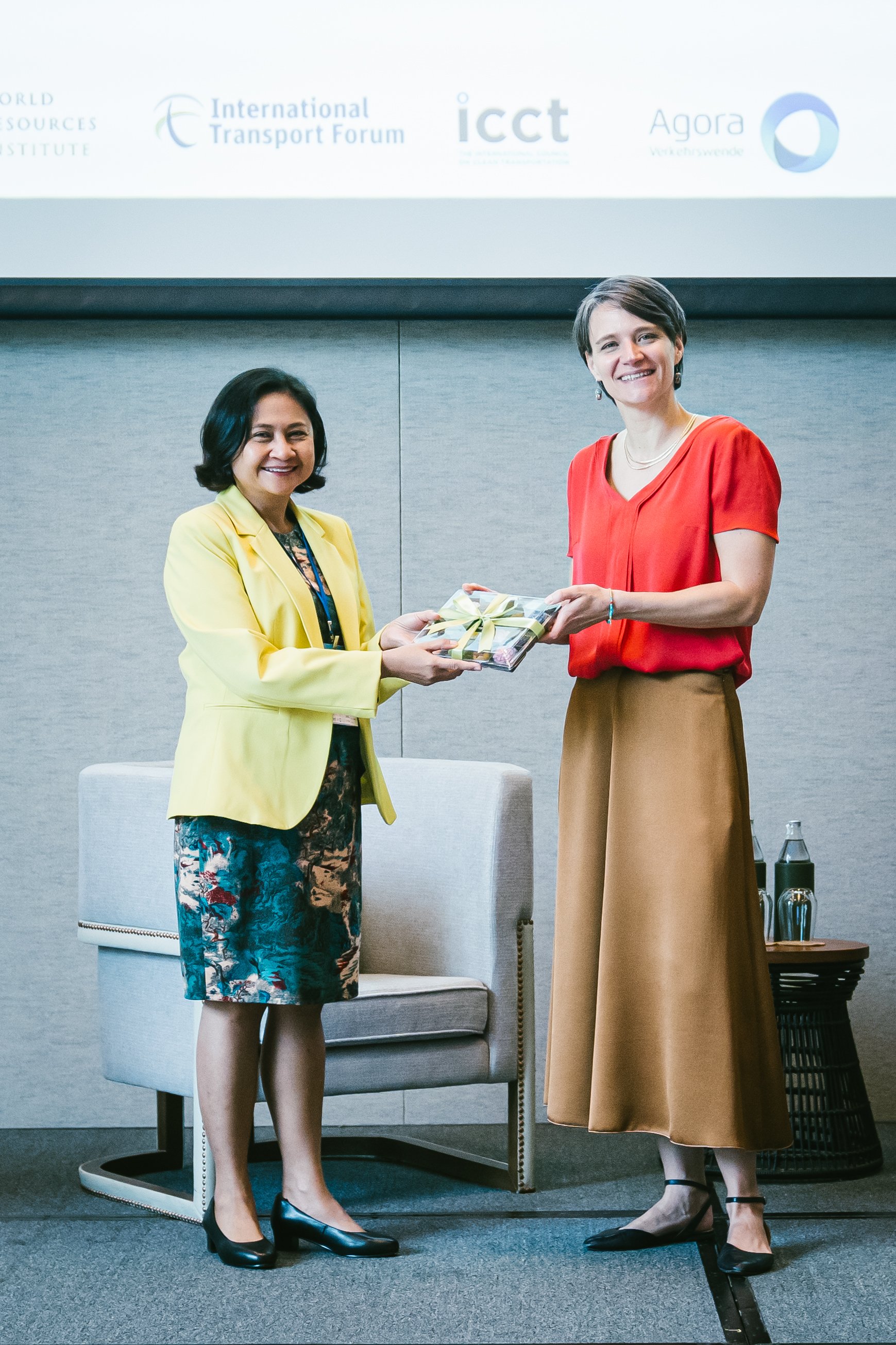EVENT UPDATE: Low Carbon-Transport in Progress: Transforming Transport in Asia
Daily updates from the June 2024 Conference in Bangkok
〰️
Daily updates from the June 2024 Conference in Bangkok 〰️
At the 2024 regional conference of the NDC Transport Initiative for Asia (NDC-TIA), participants discussed the necessary transformations to set transport on a sustainable path to zero emissions by mid-century, ensuring climate action and prosperity.
Regional Conference in Bangkok
From 25 to 28 June 2024, Bangkok, Thailand hosted the "Low-Carbon Prosperity in Progress: Transforming Transport in Asia", the regional conference of the NDC Transport Initiative for Asia (NDC TIA).
It will address the urgent need for sustainable transport solutions in the region, aiming to achieve zero emissions by mid-century. It will focus on collaborative efforts and successes in decarbonising the transport sector across Asia, including China, India, Vietnam, the Philippines, and Thailand. Representatives from Cambodia and Indonesia will also participate in the conference.
A stocktake of transforming transport in Asia
The event brought together government representatives, civil society, practitioners and the private sector from Asian countries and beyond, providing a platform for live exchanges and thematic sessions to foster peer learning and promote a holistic approach to decarbonisation. The conference strengthened ties within the transport community across Asia and identify additional steps needed to transform our transport-energy systems.
Beyond these countries, at the regional and global level, the programme connected to additional countries in Southeast Asia, to share lessons learned, to enhance transport decarbonisation leadership, and promote efficient multi-stakeholder coordination between government ministries, civil society, and the private sector.
Daily Updates
Follow this page each date to see how NDC-TIA experts and implementation partners take stock, share lessons learned, celebrate successes, and look at the next steps to scale up action to ensure zero emissions and a prosperous future in Asia.
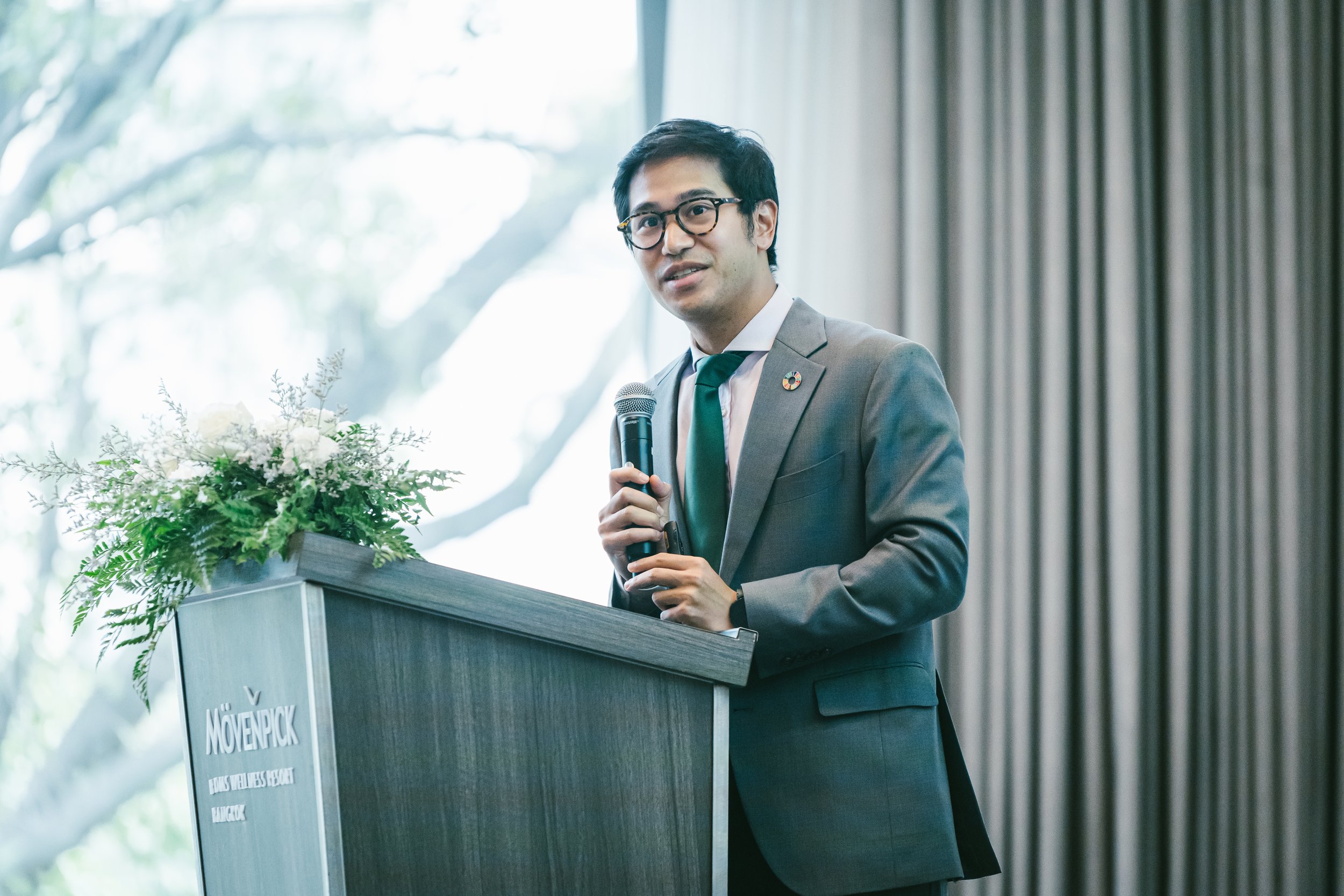
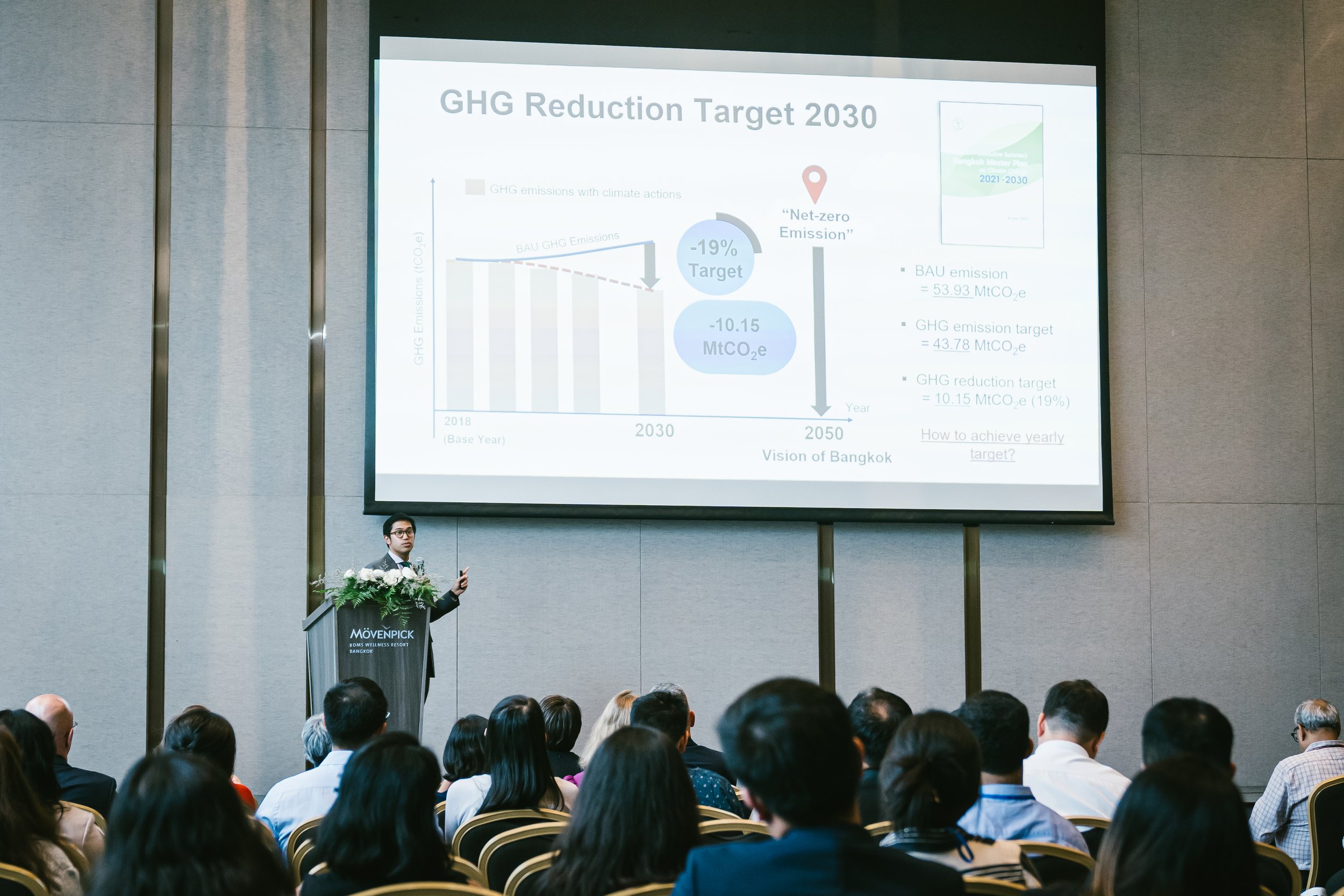
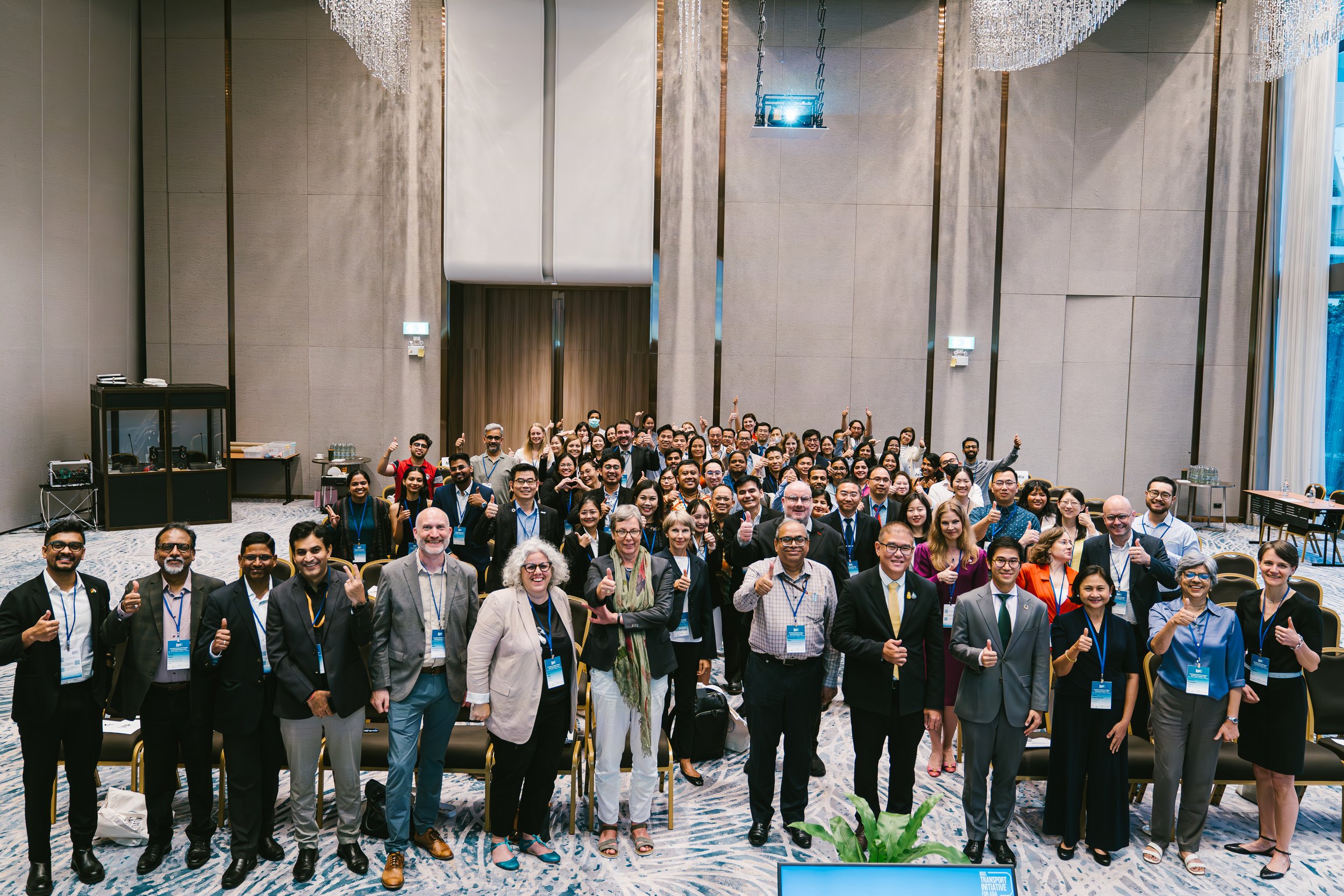
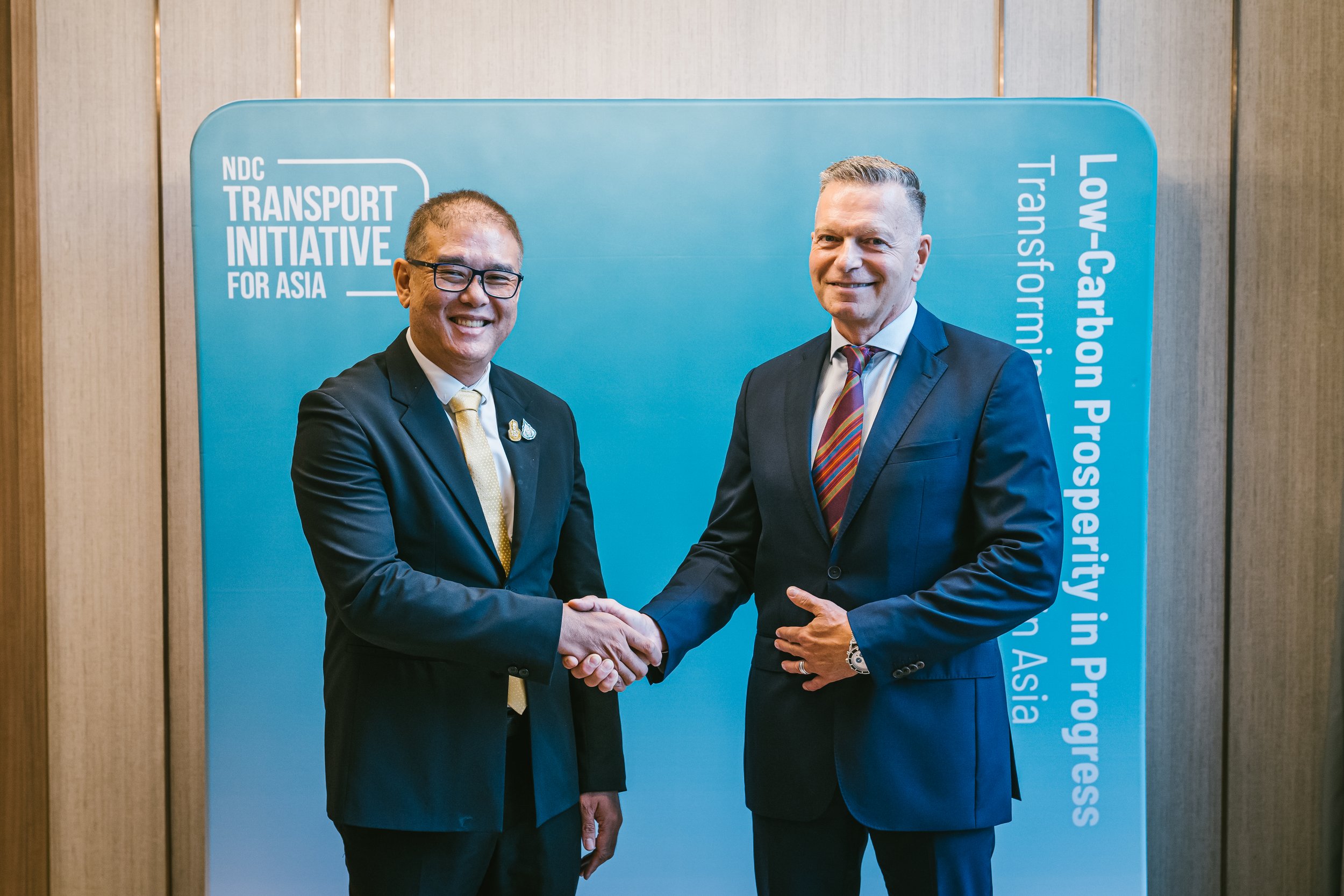
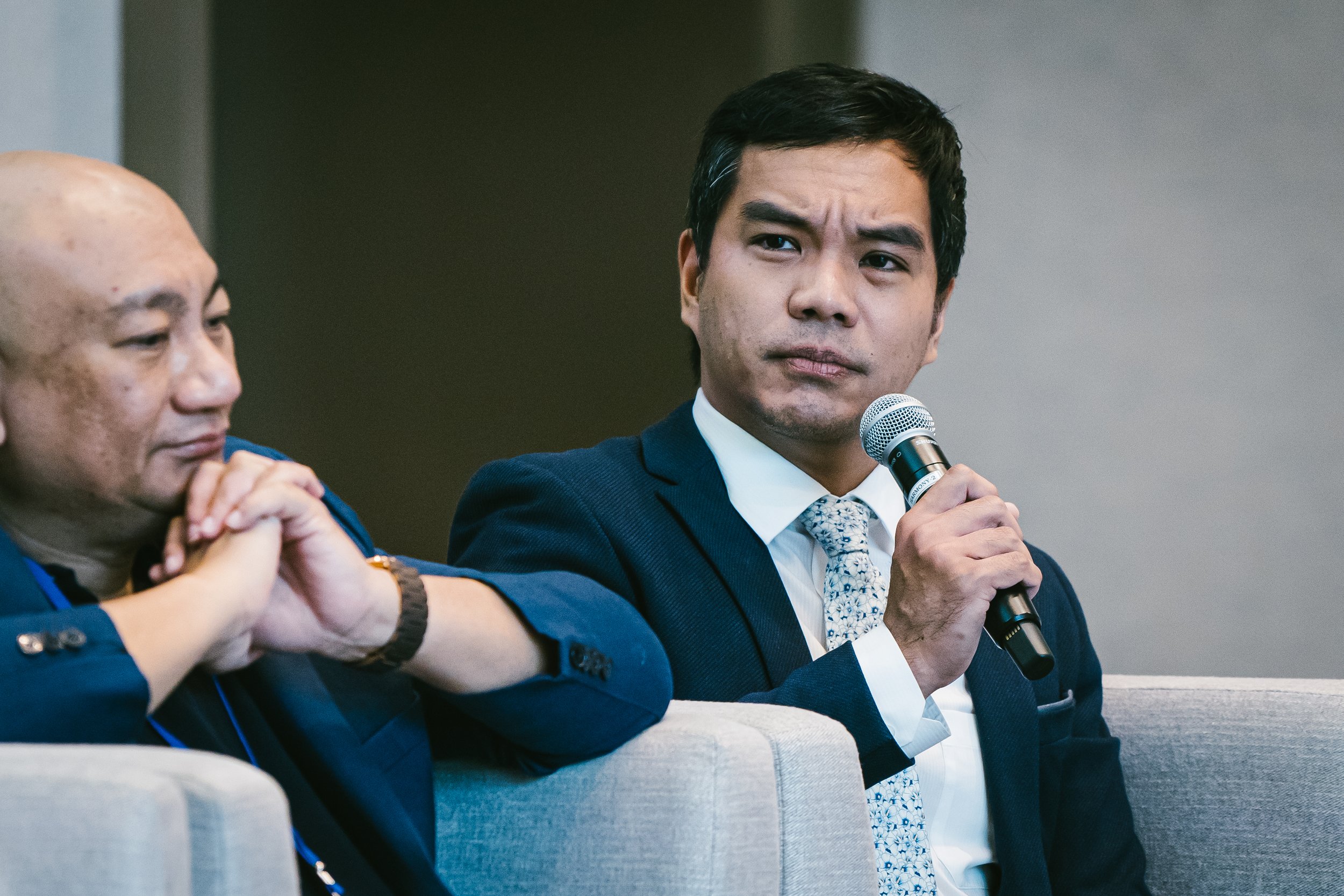

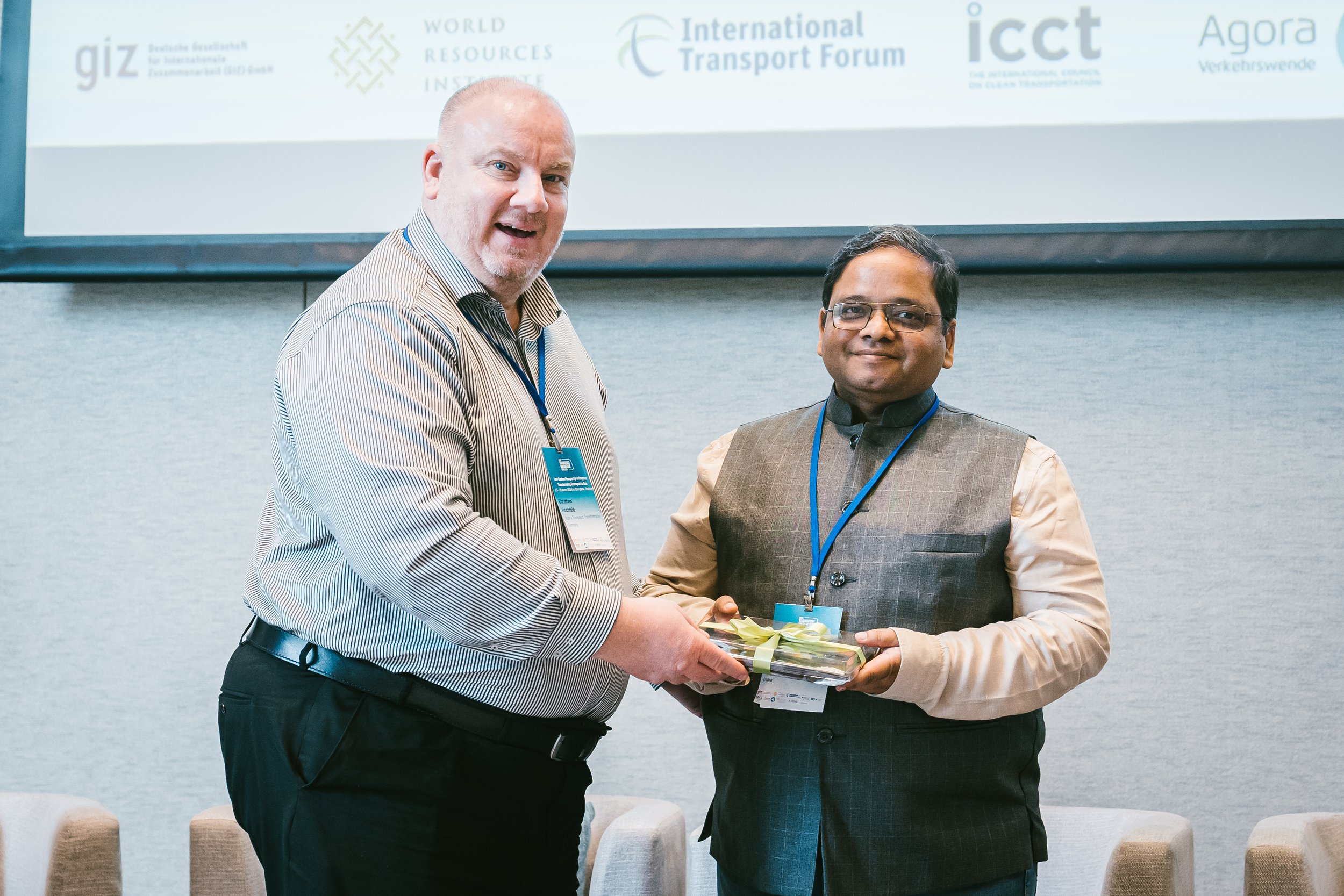
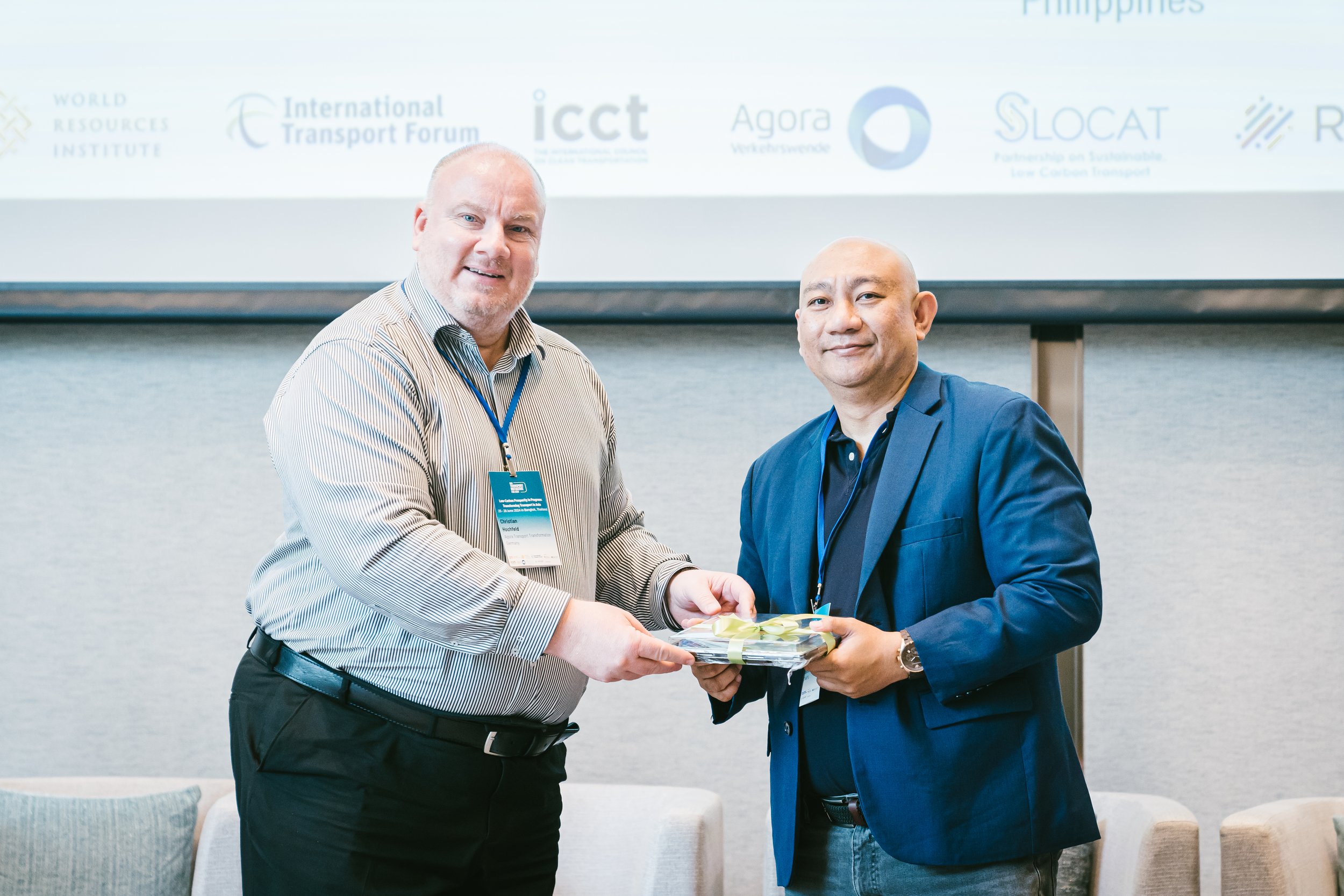
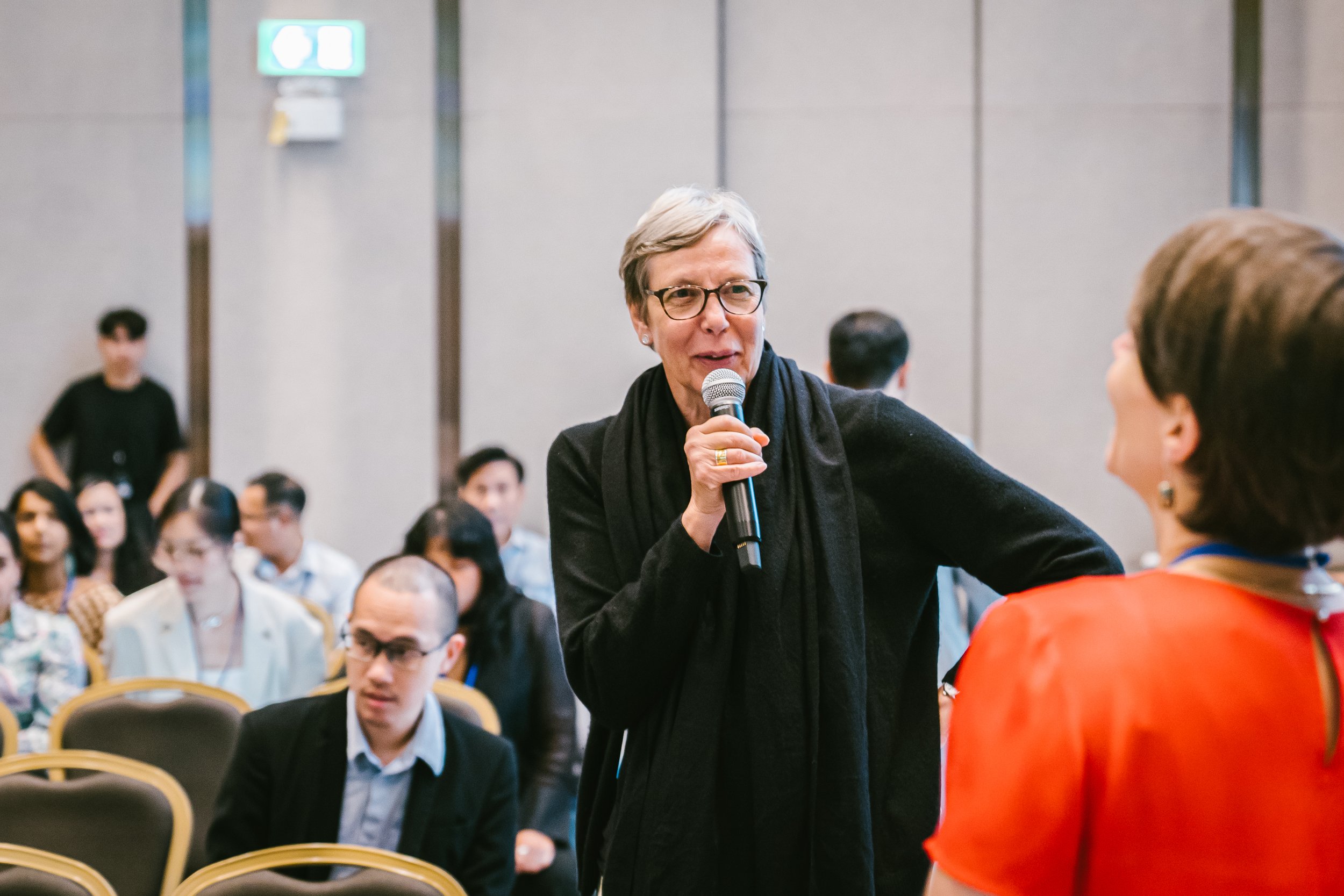
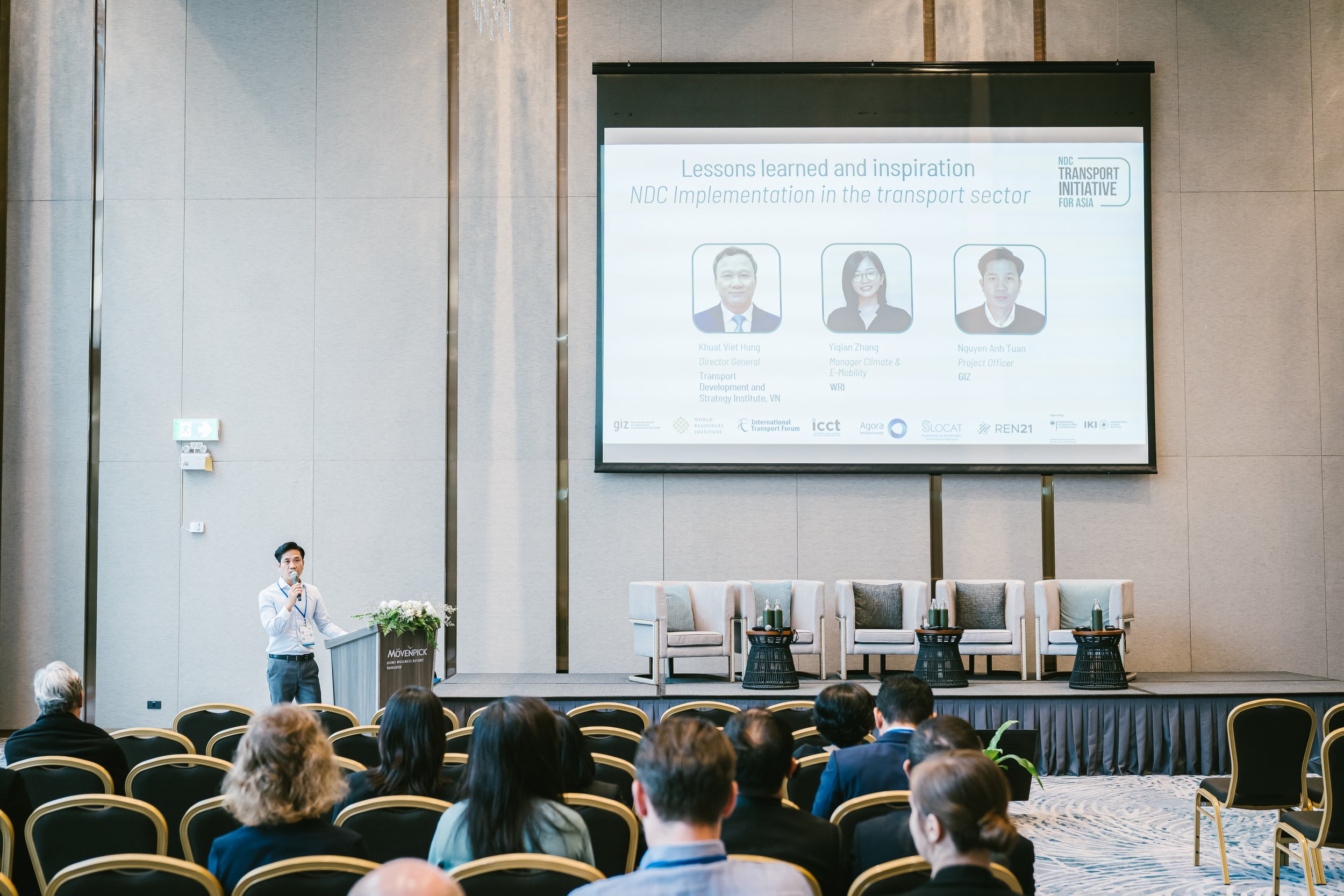
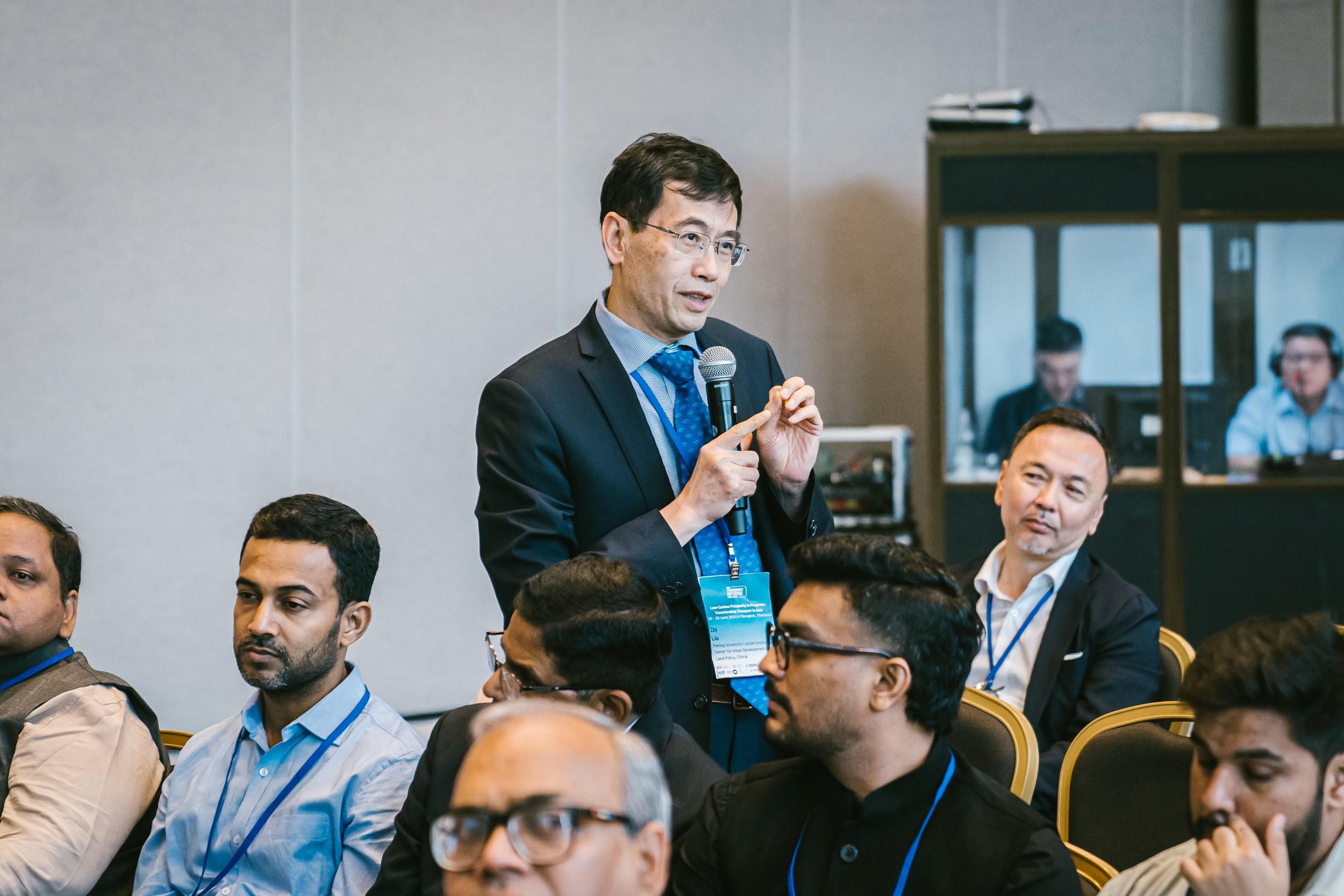
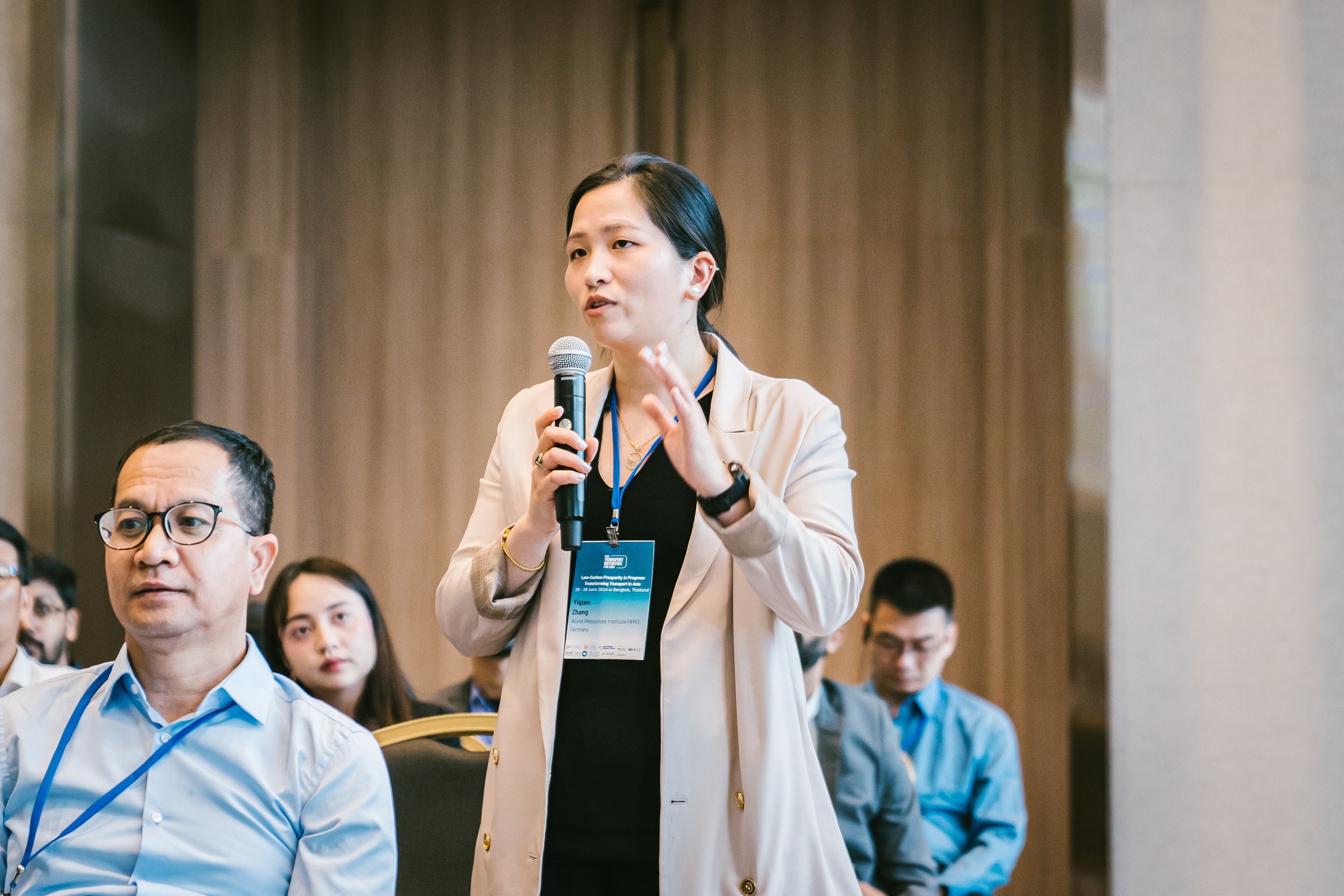
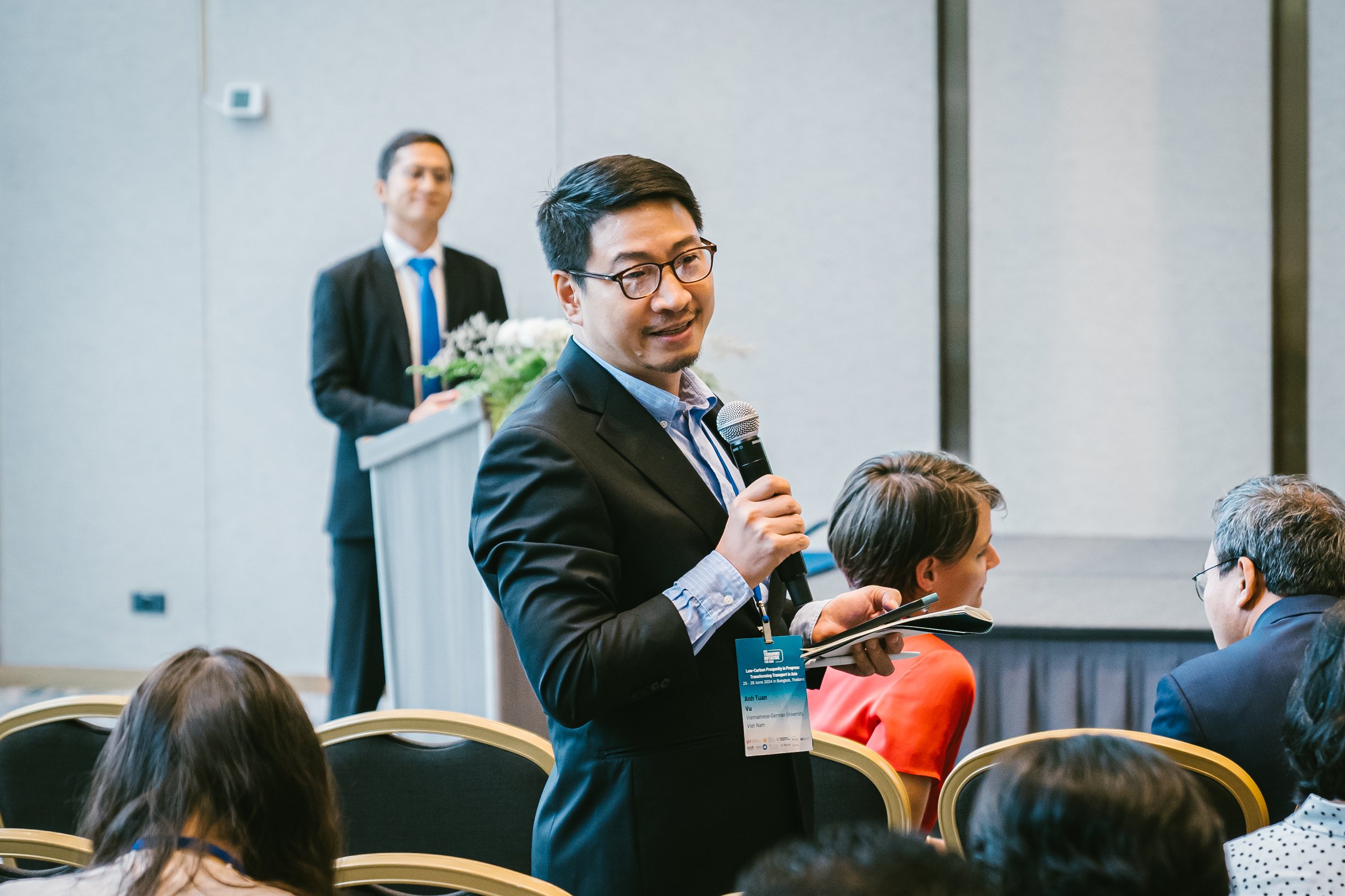
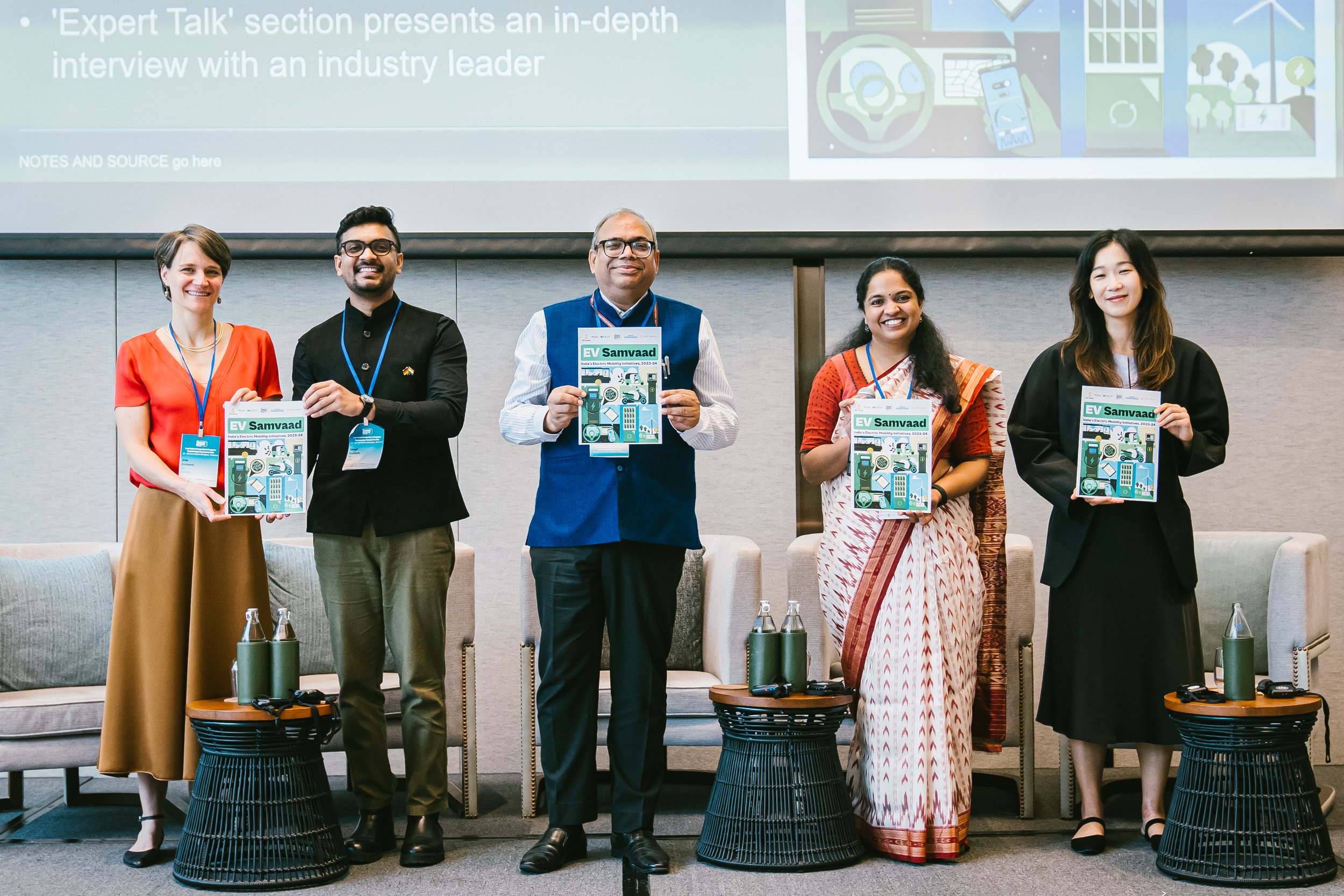
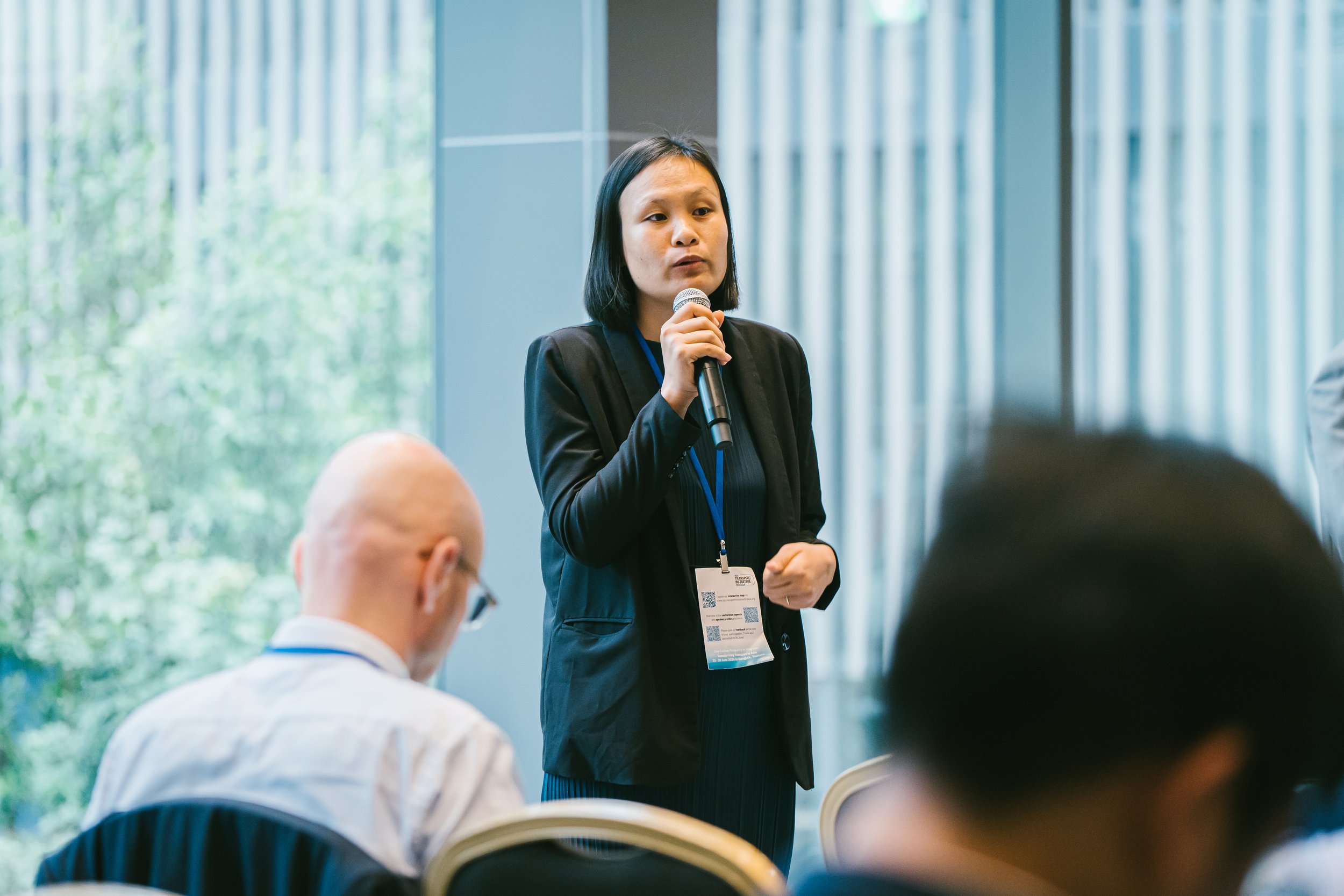

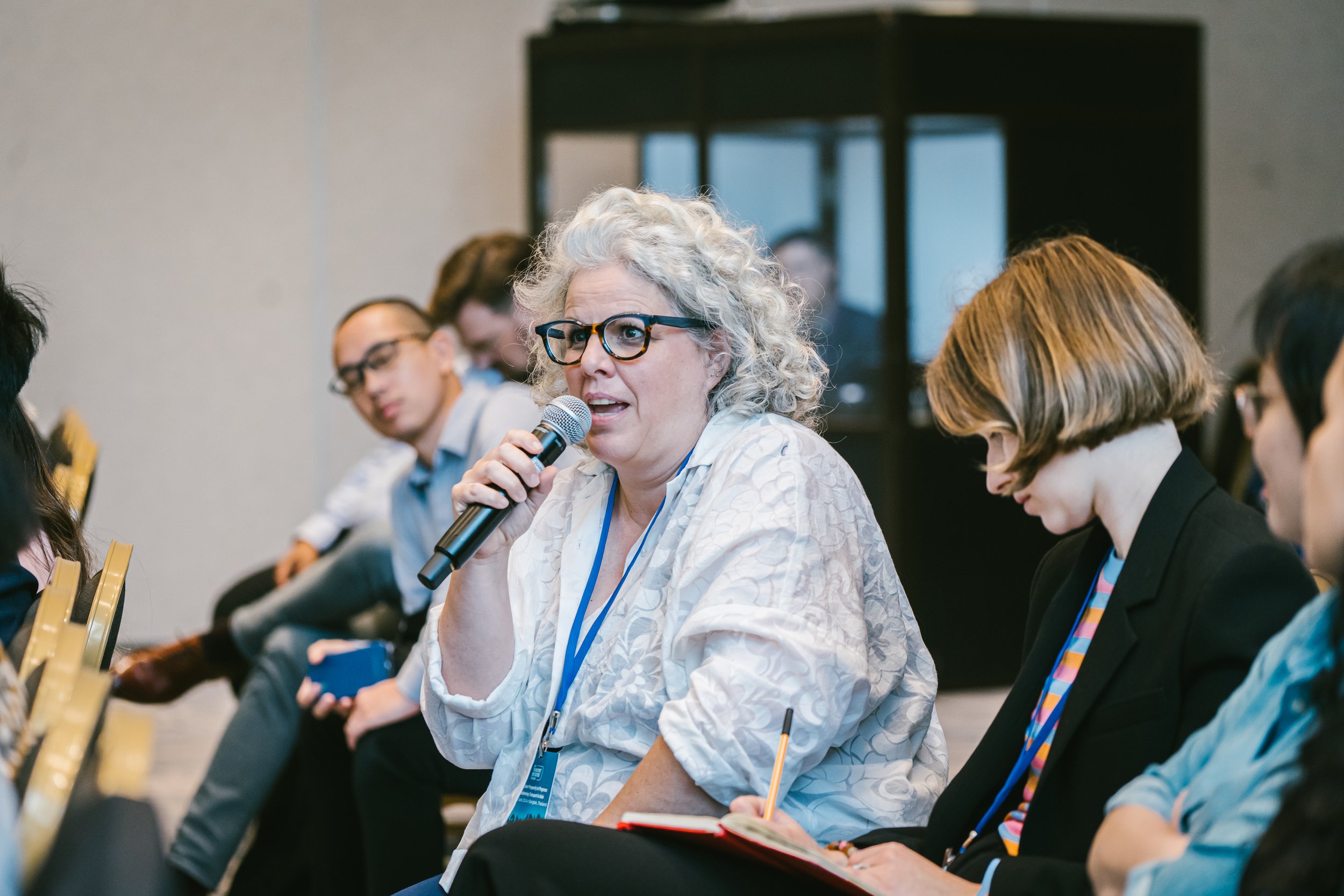
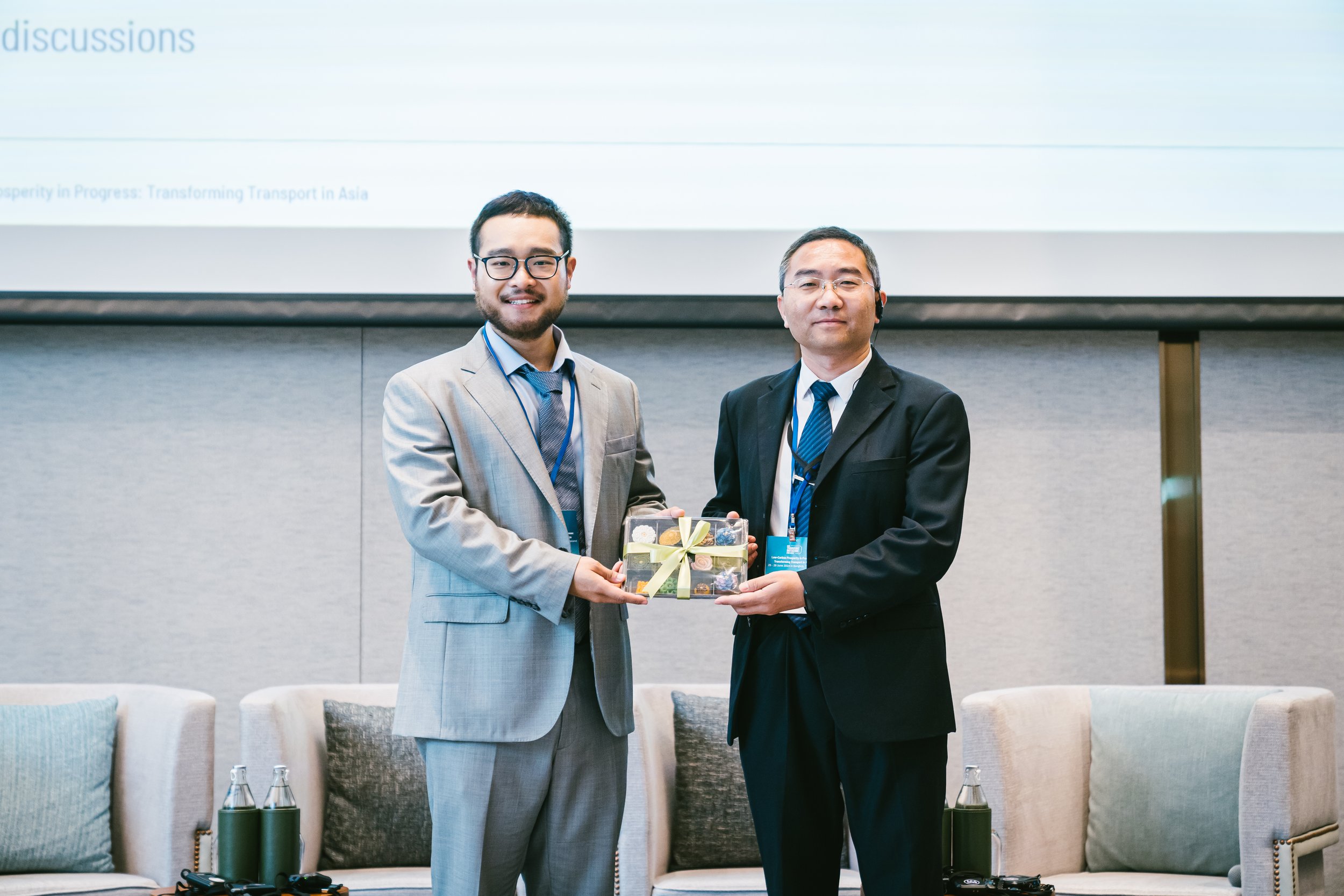
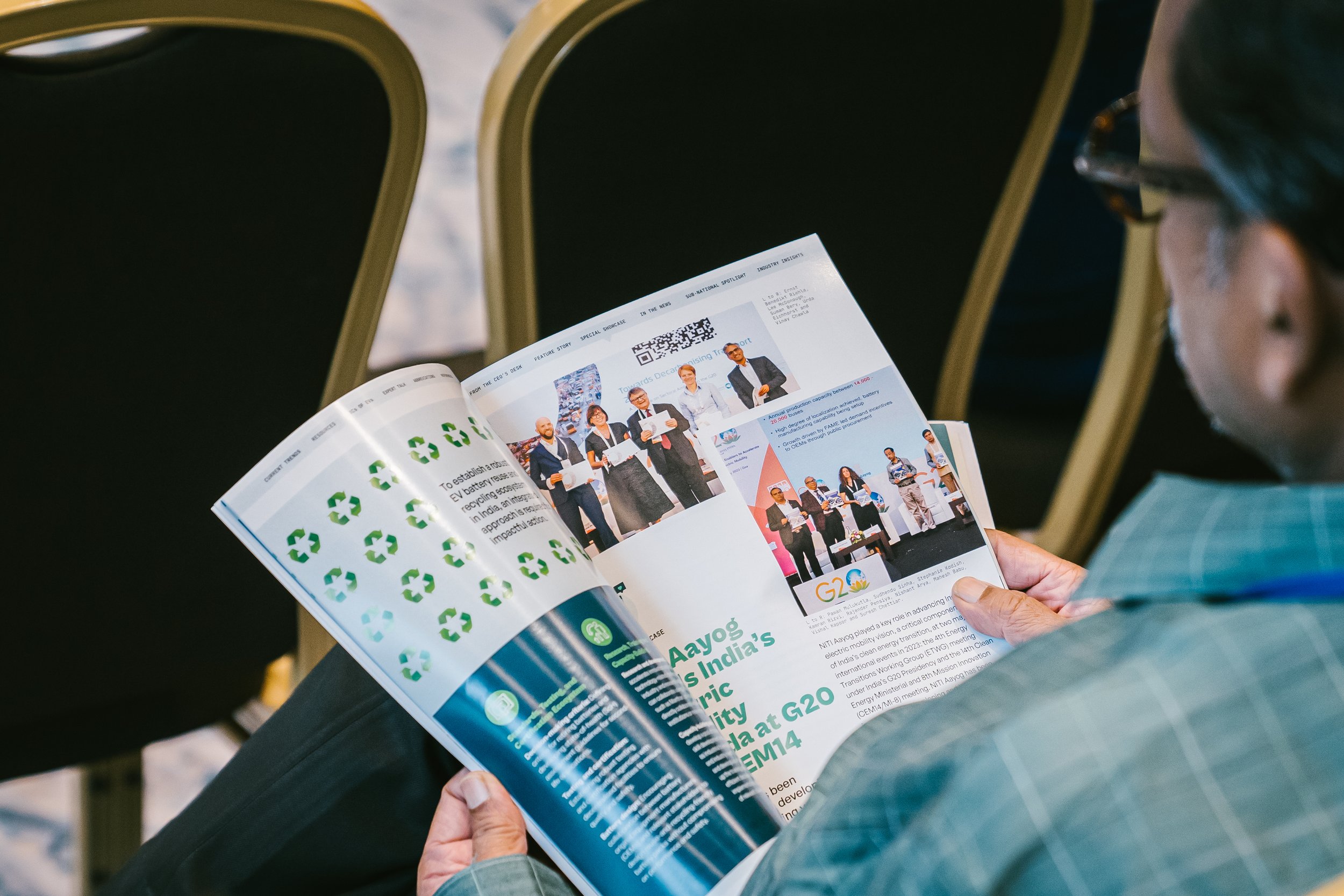


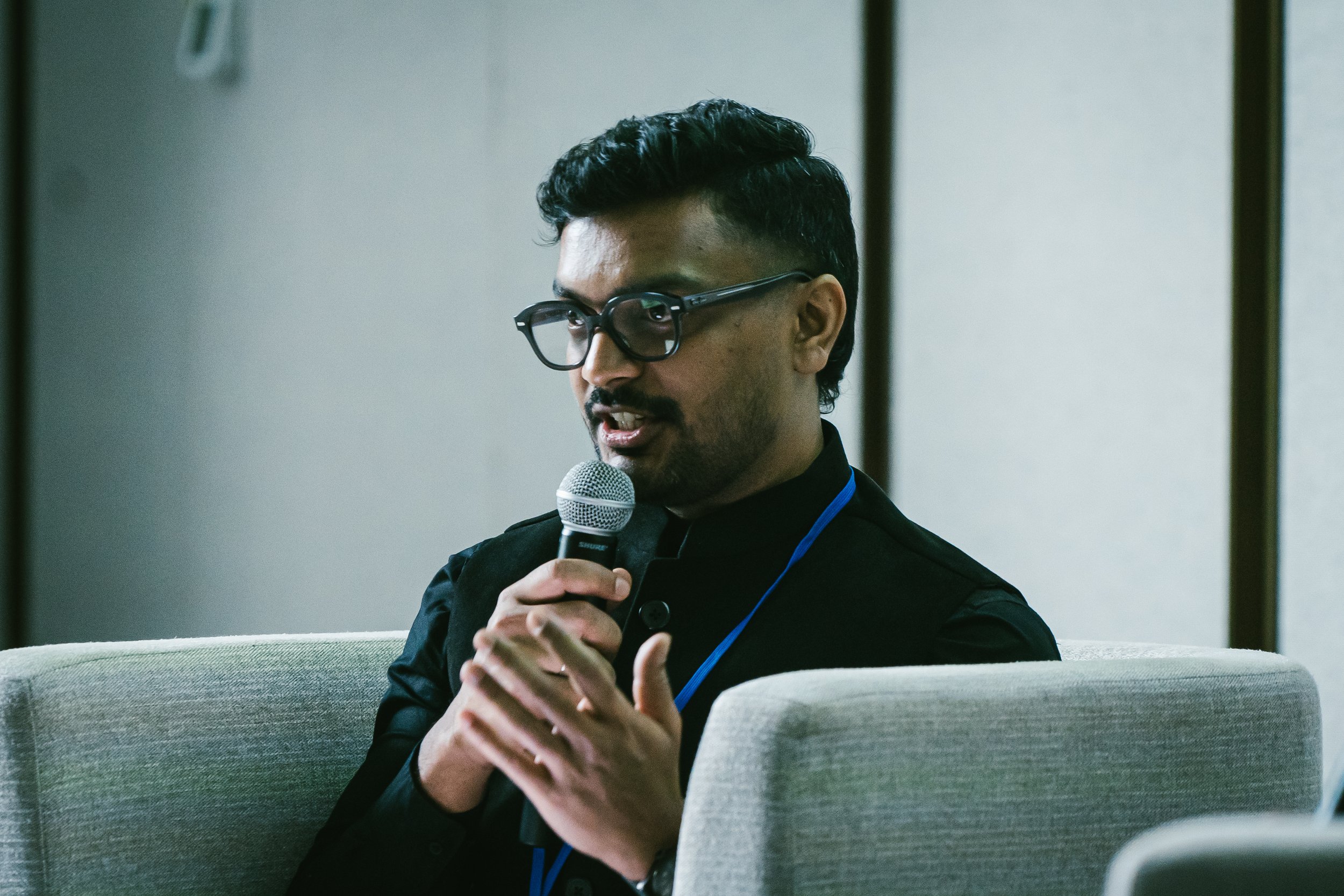
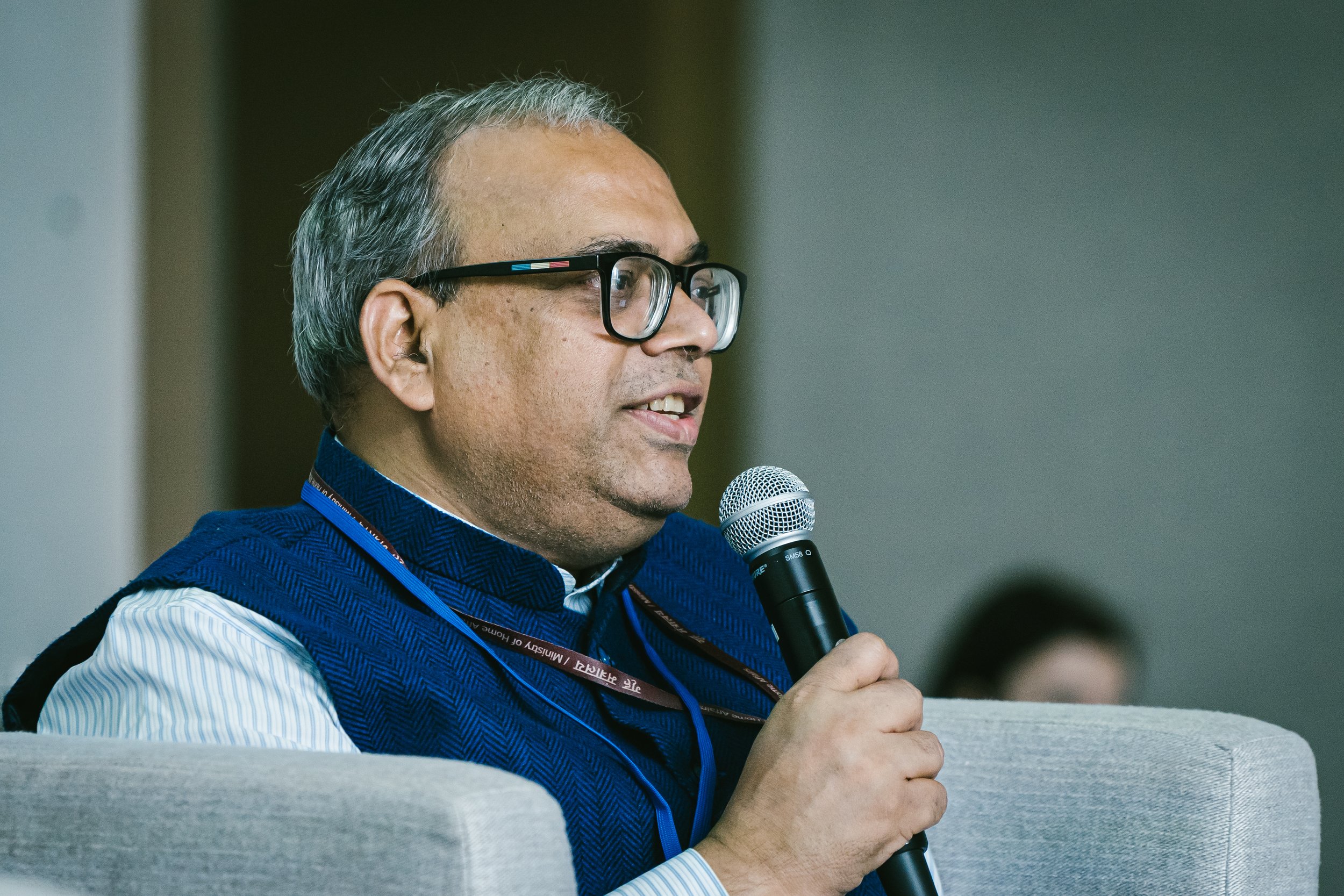
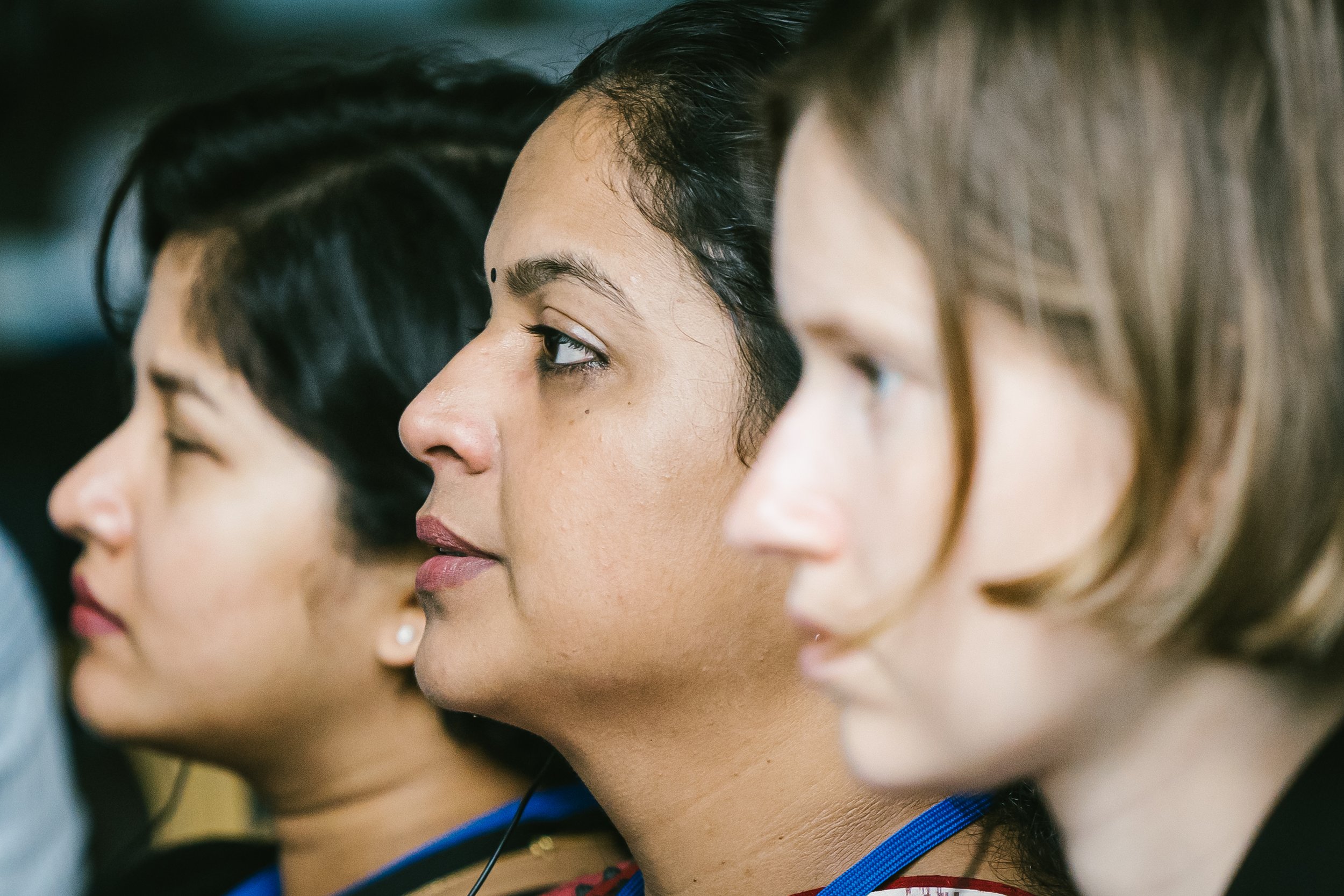


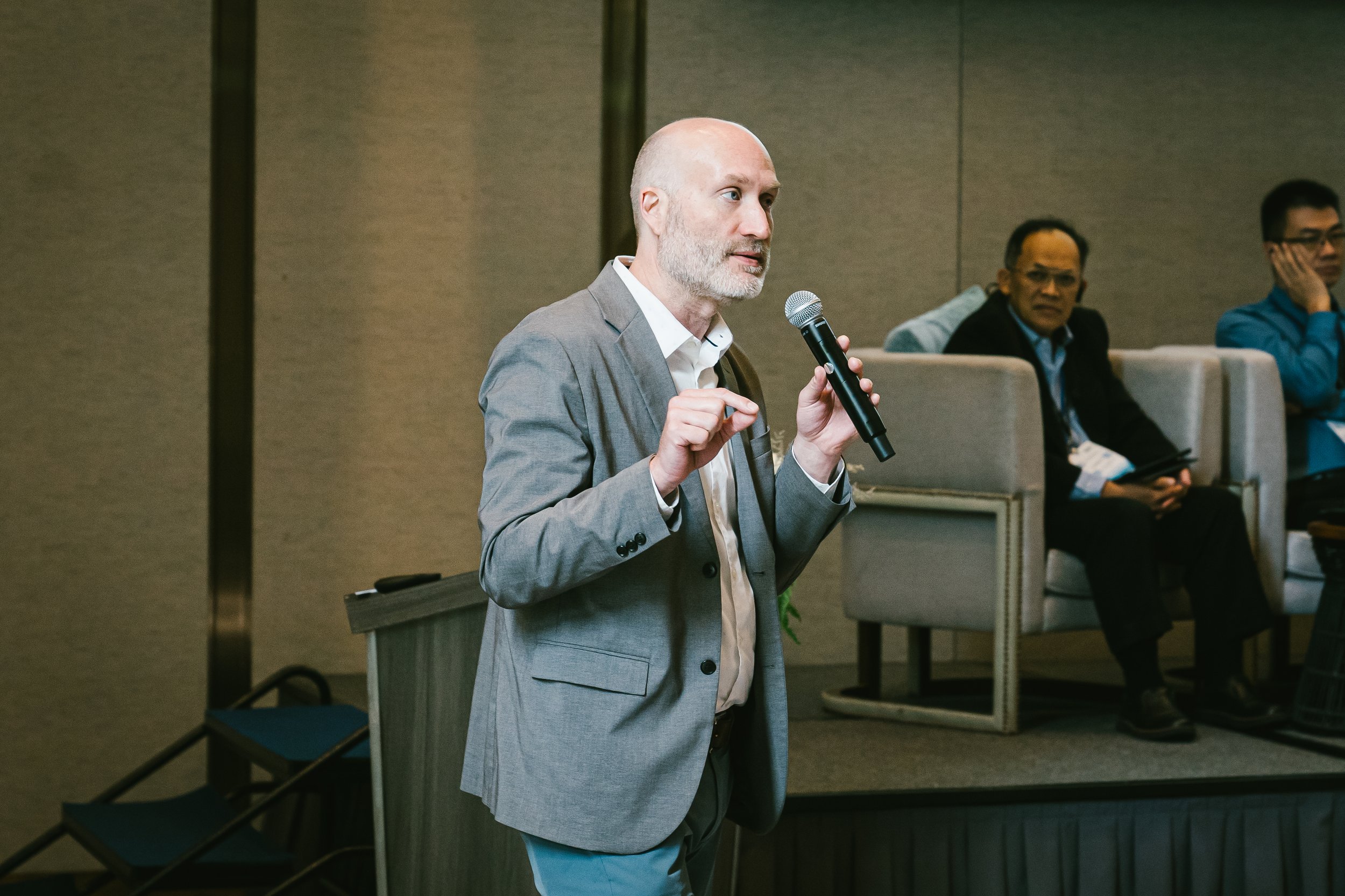
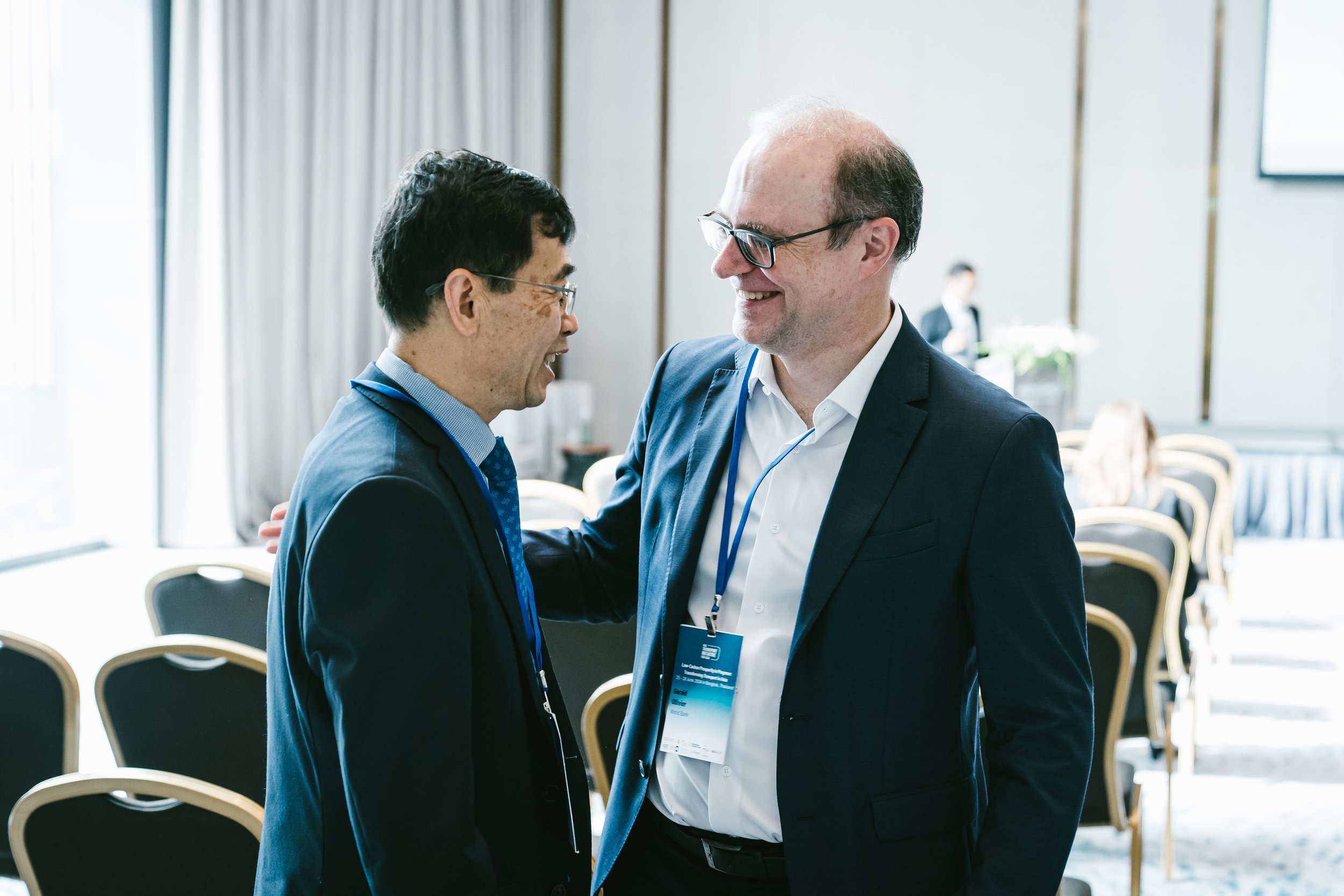
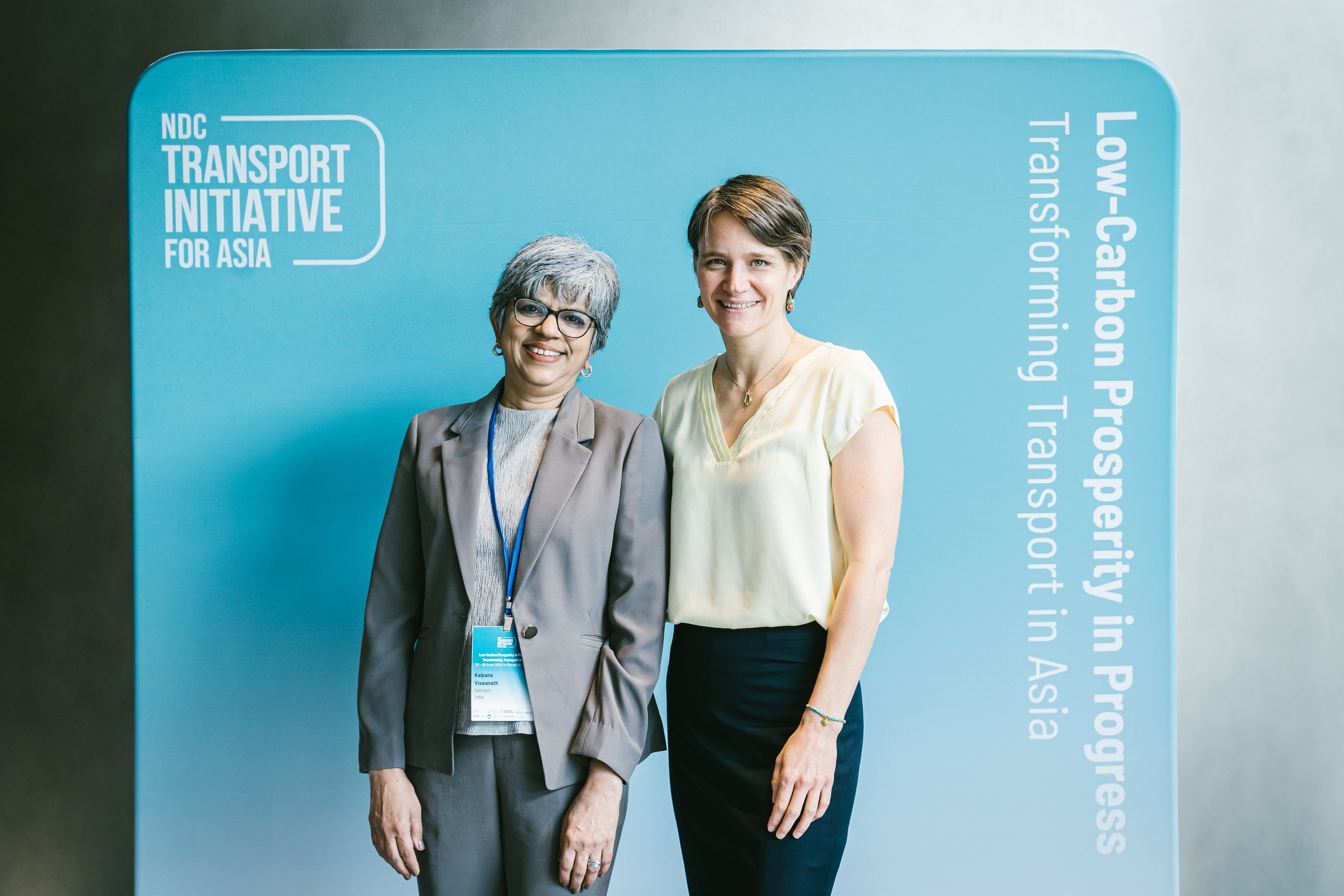

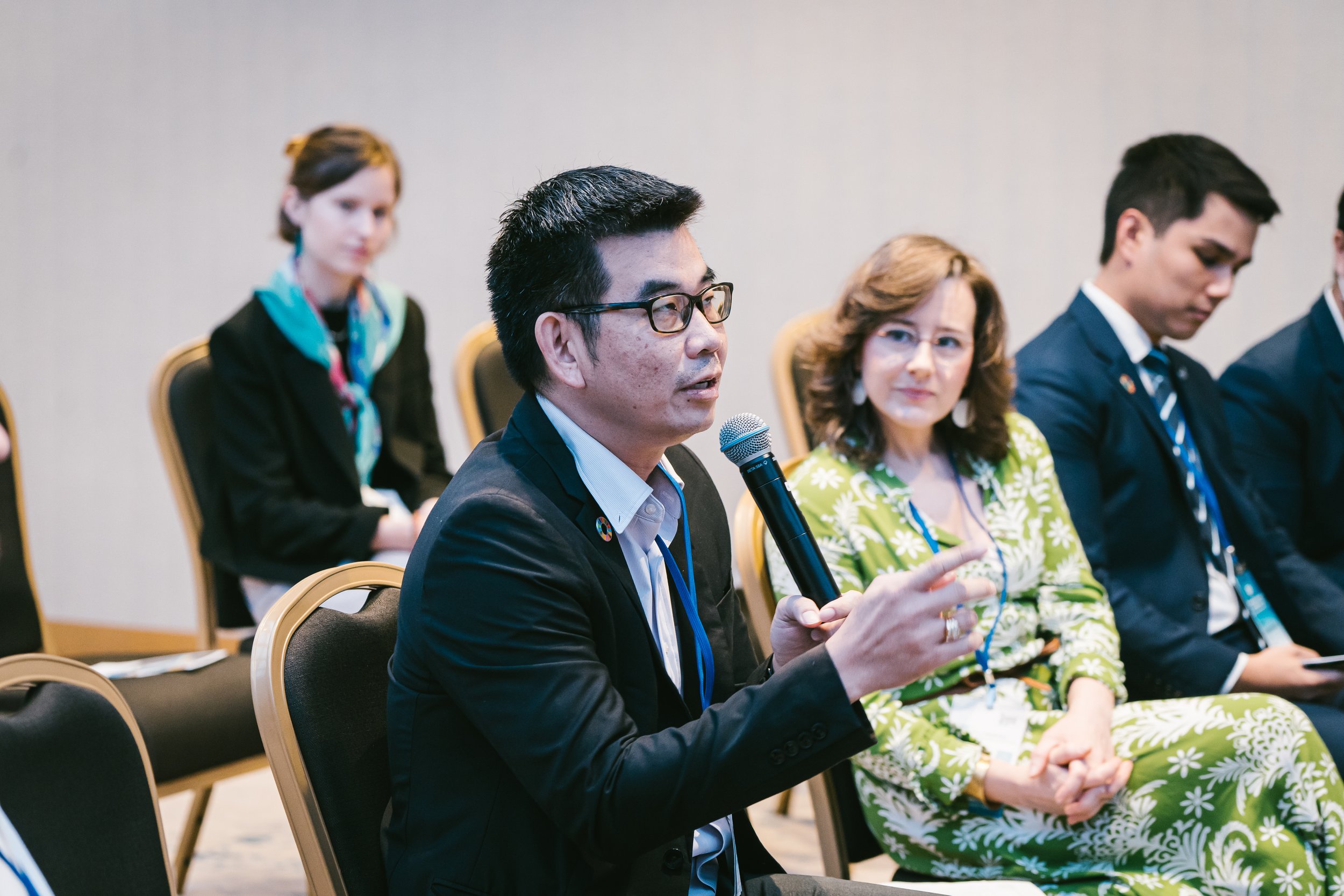
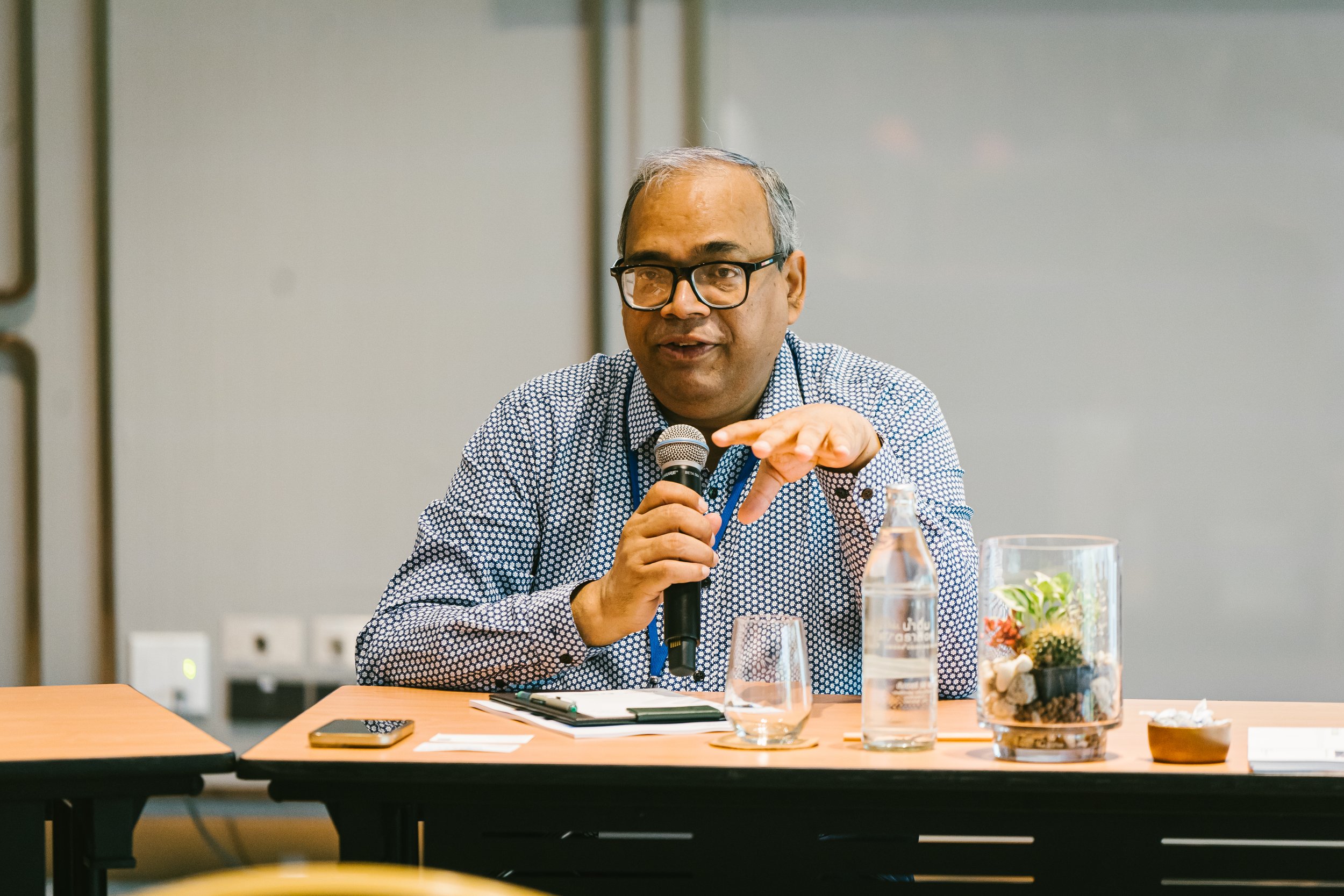
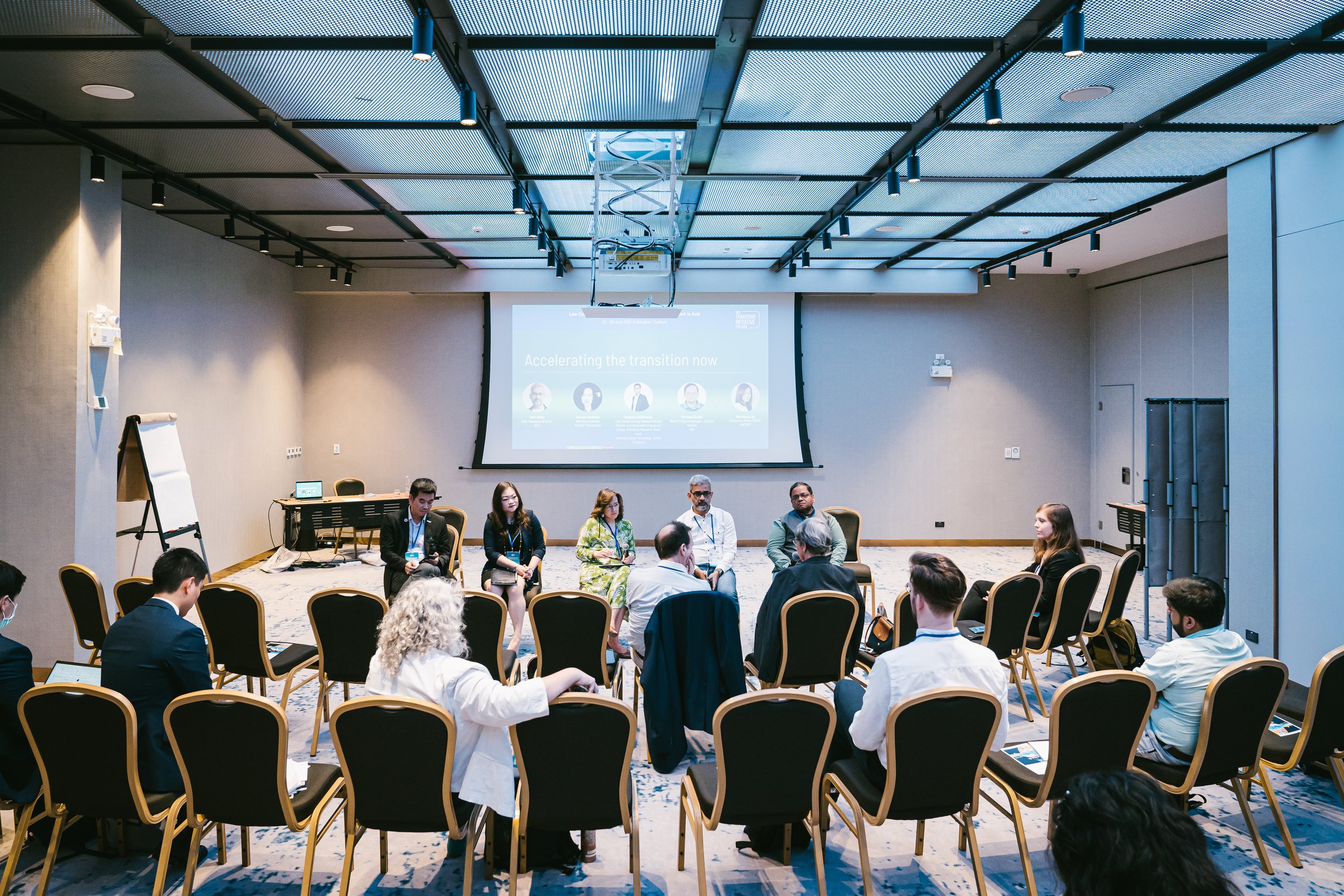


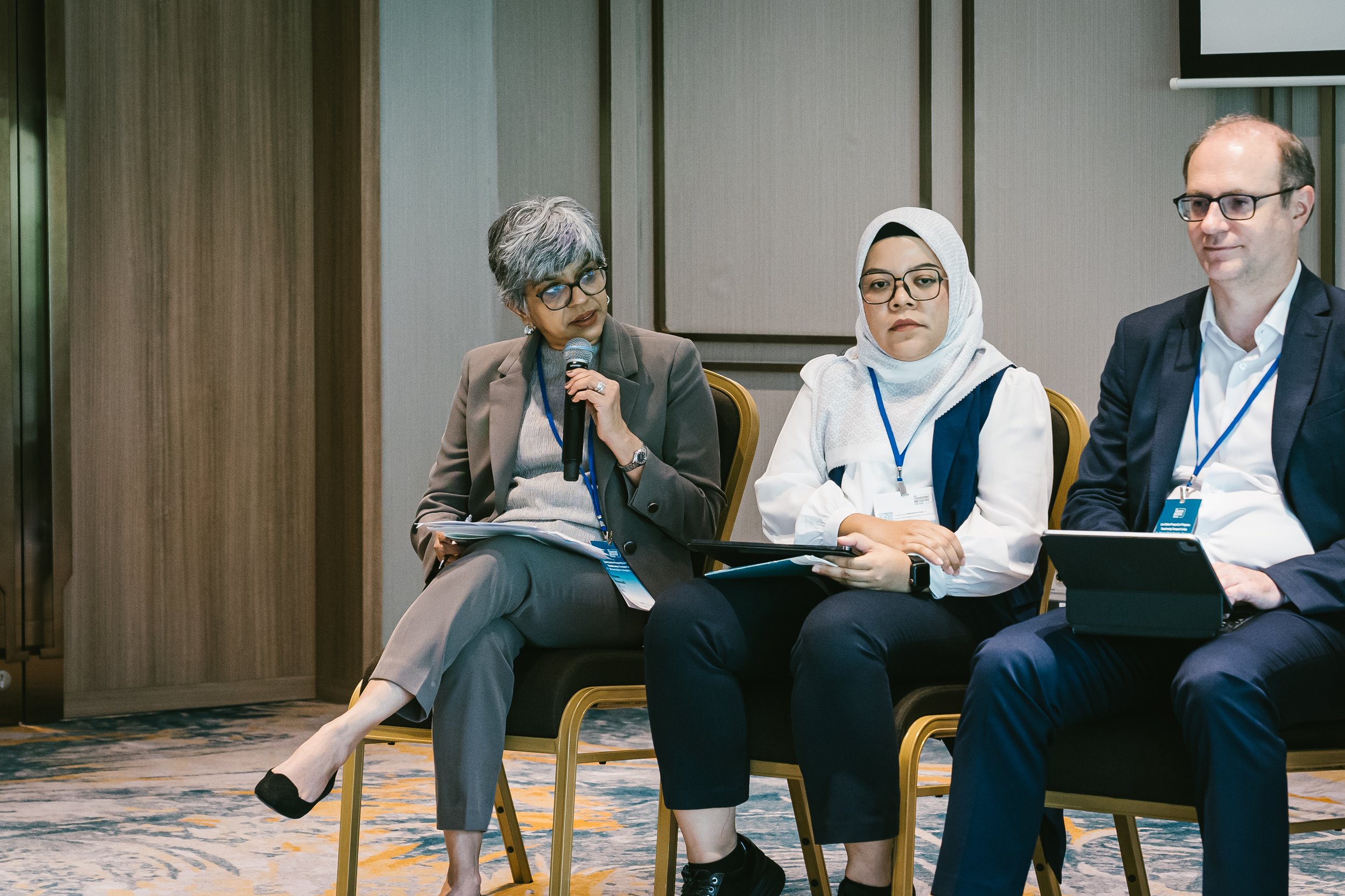


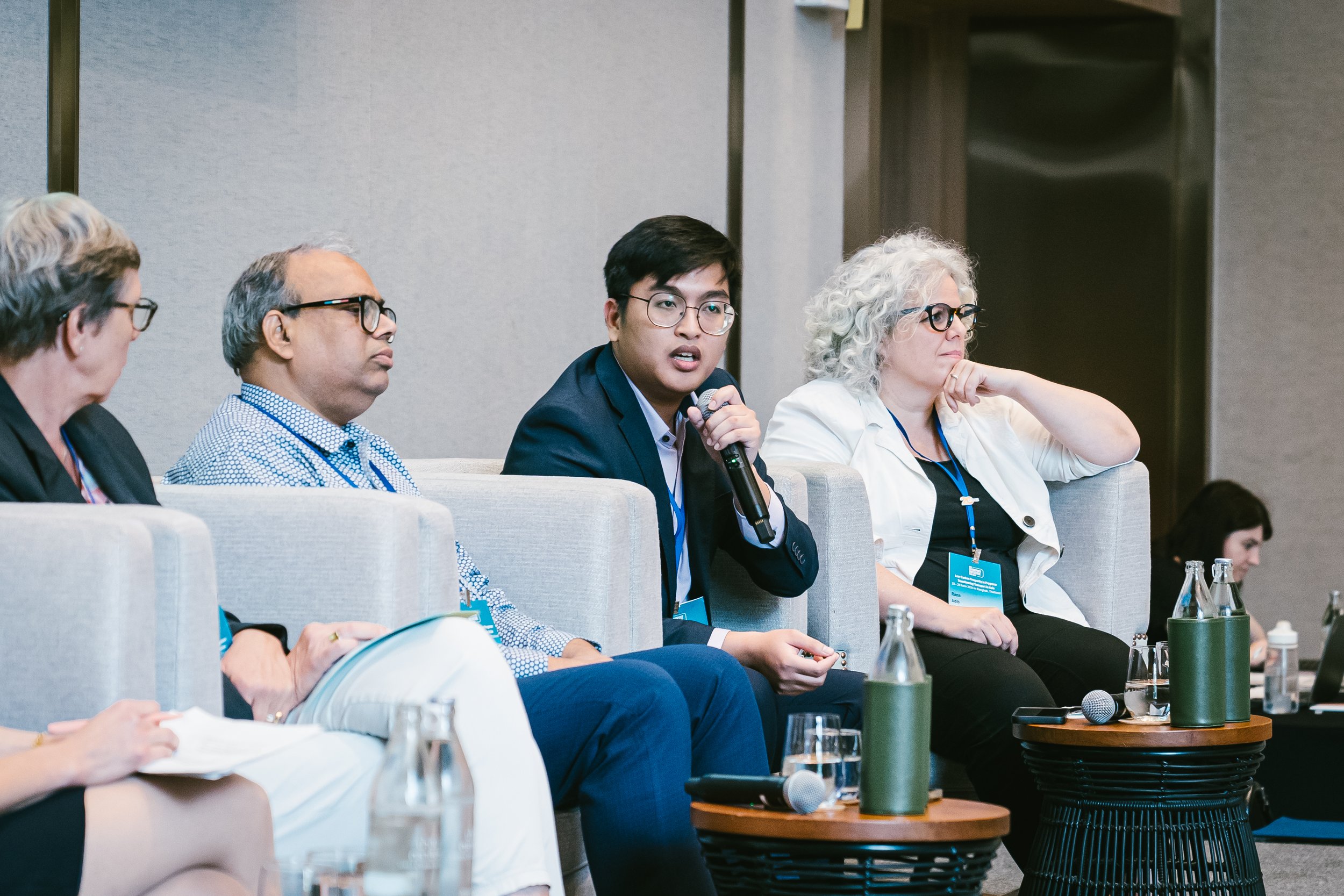
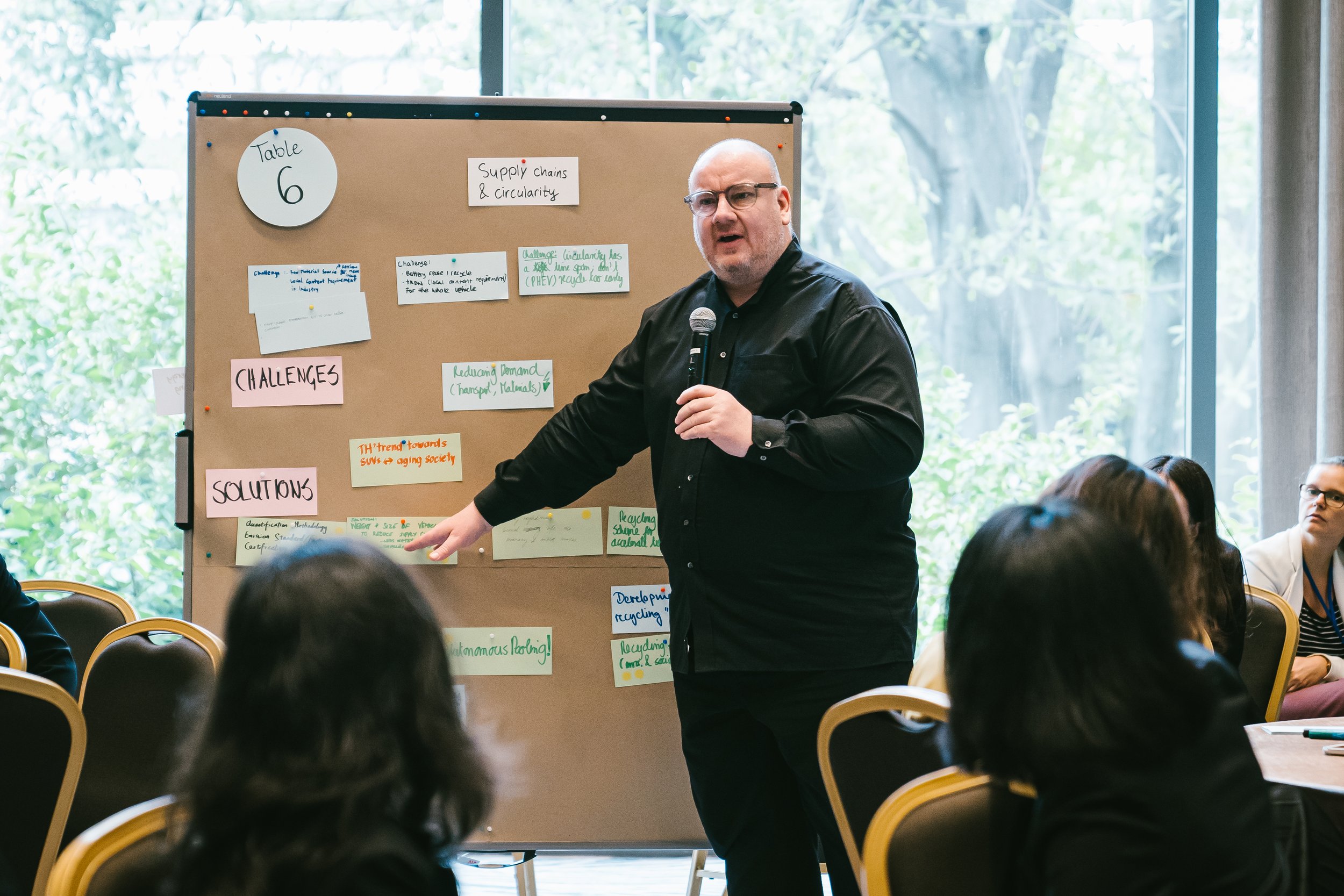
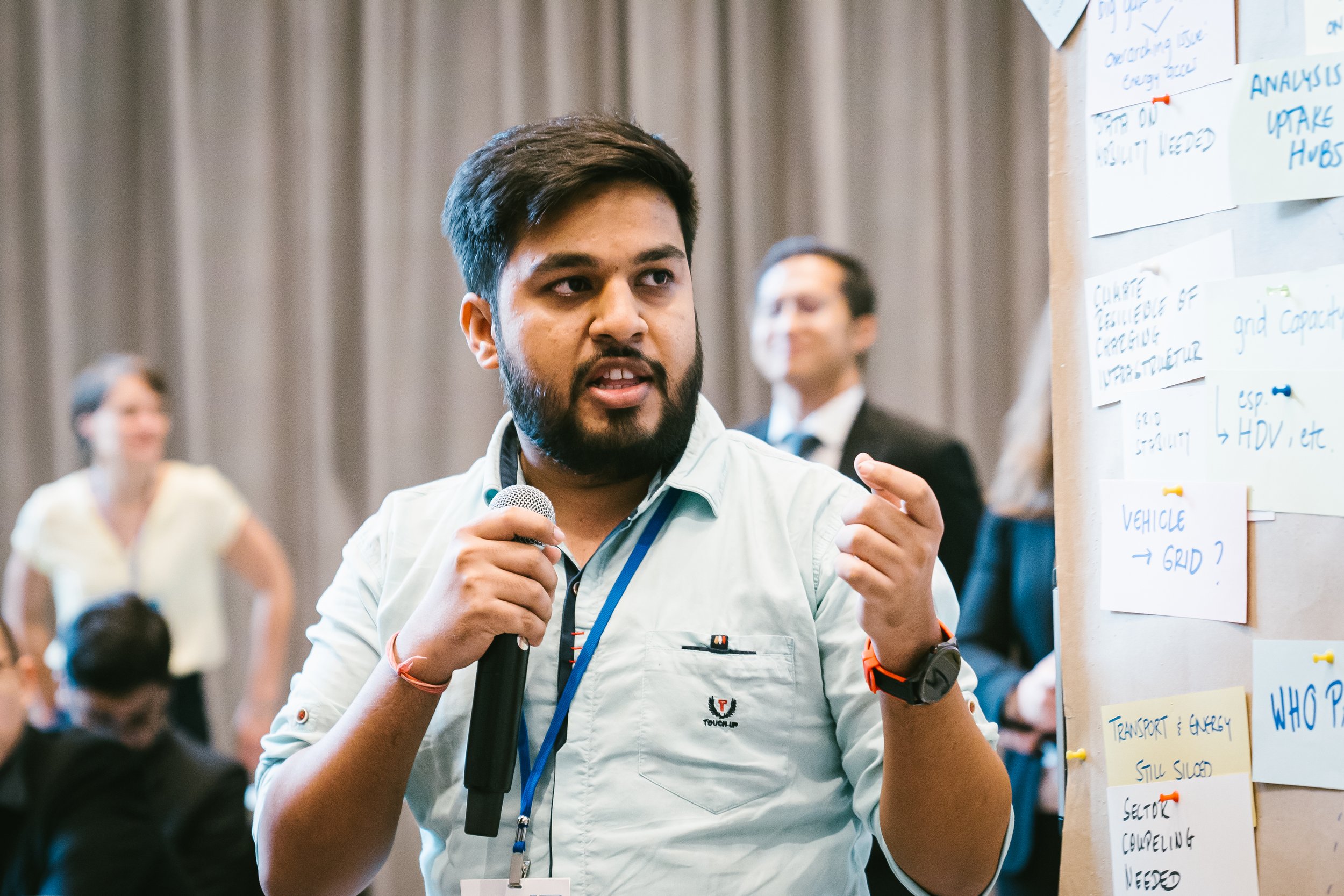
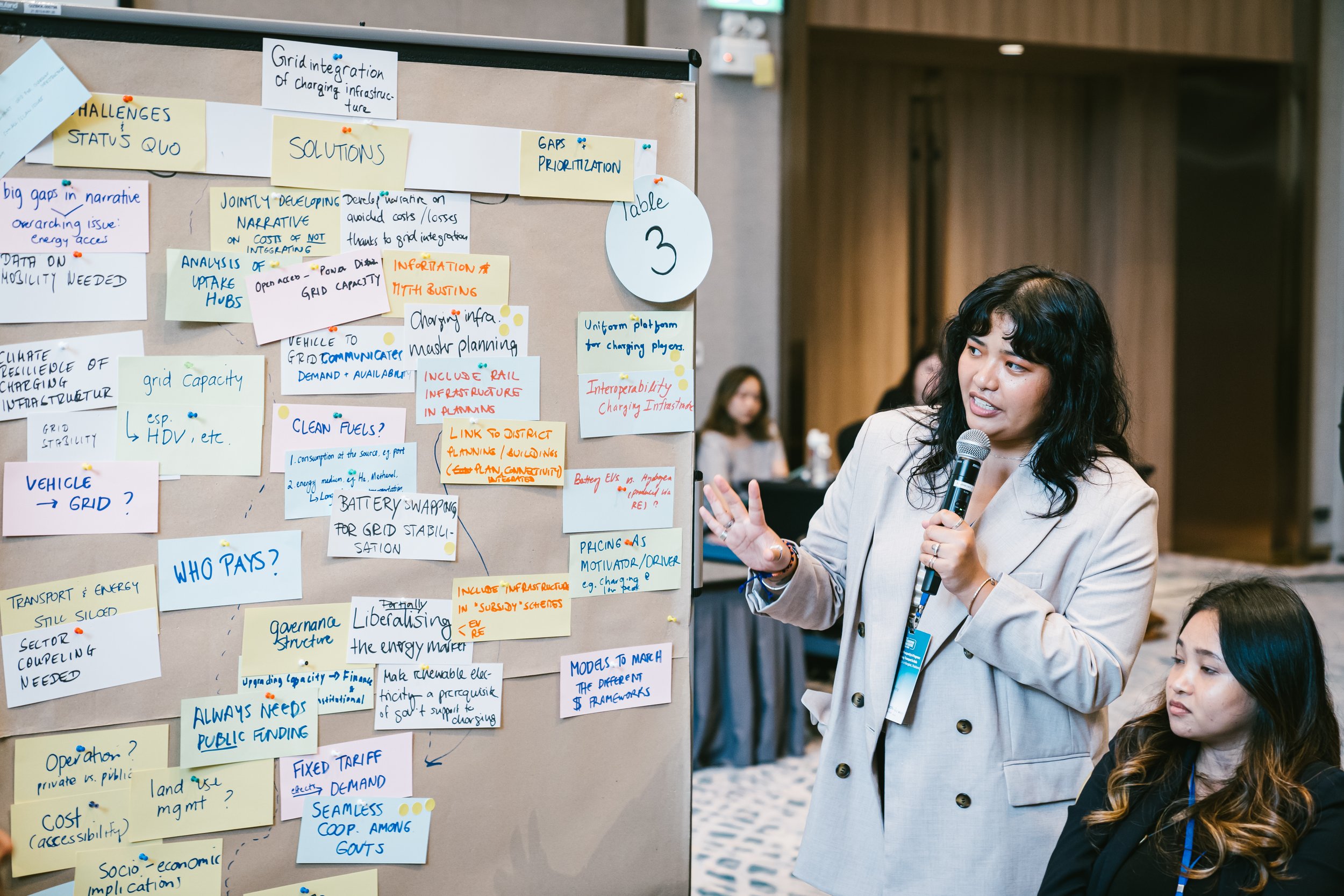

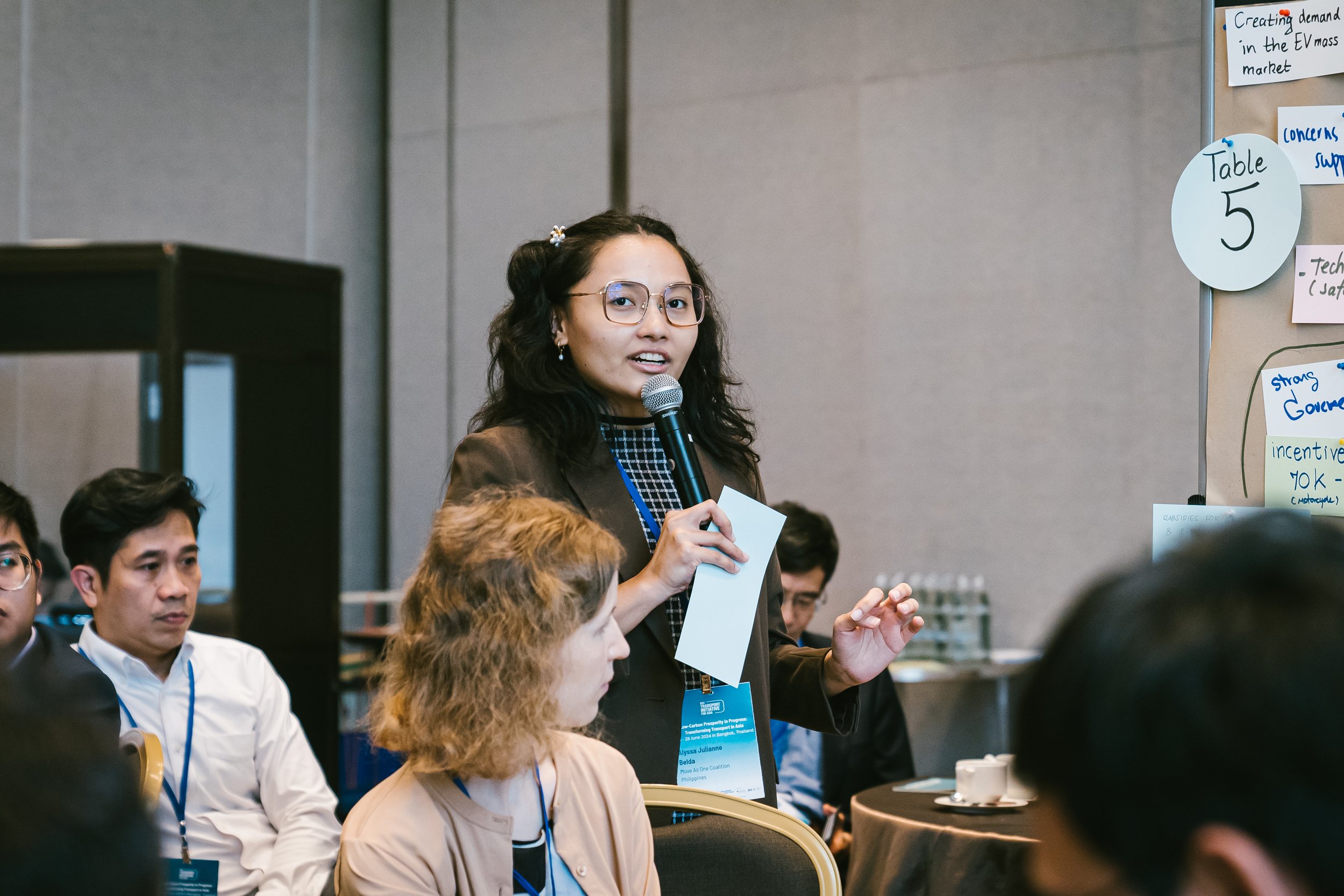


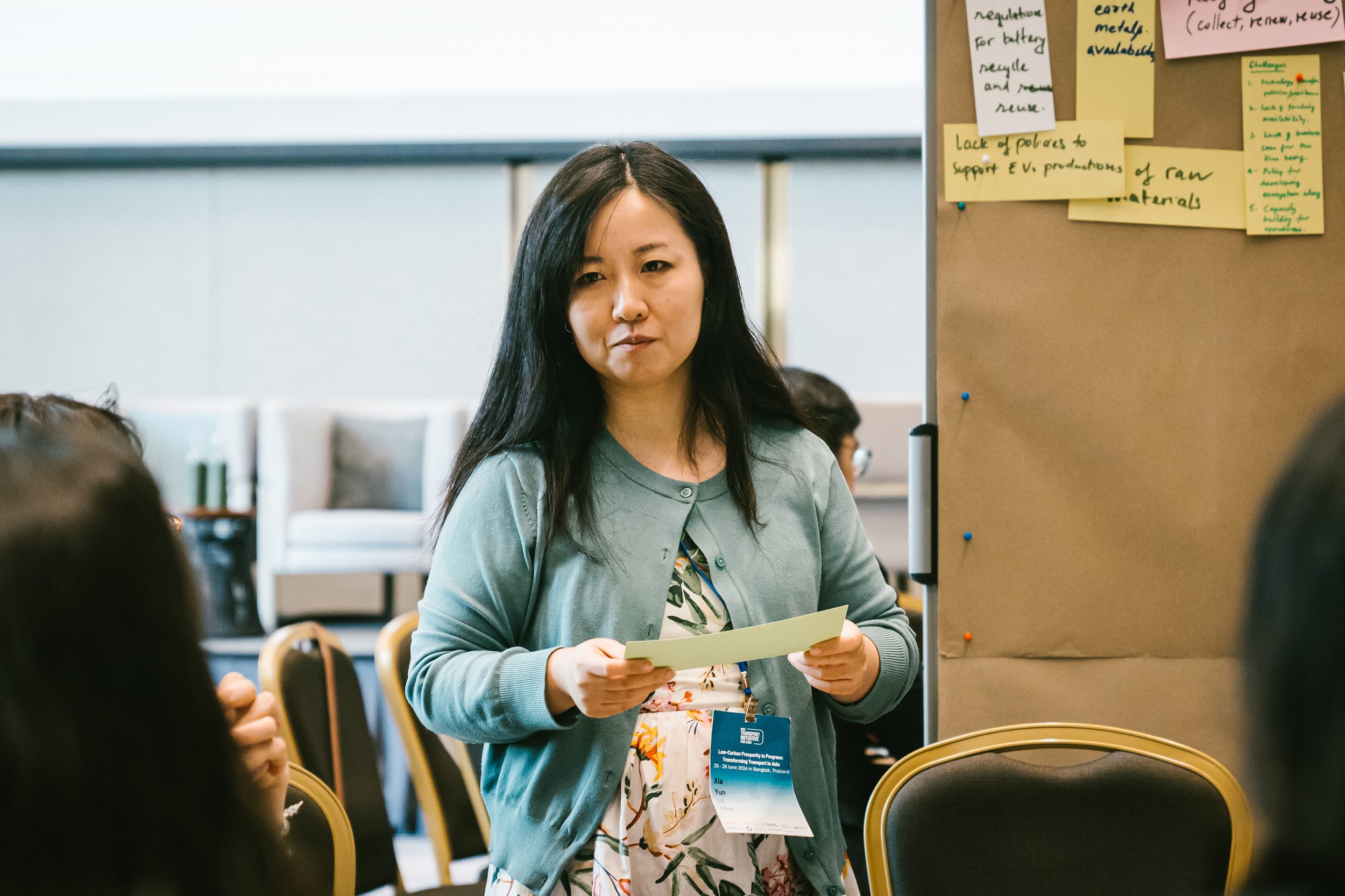
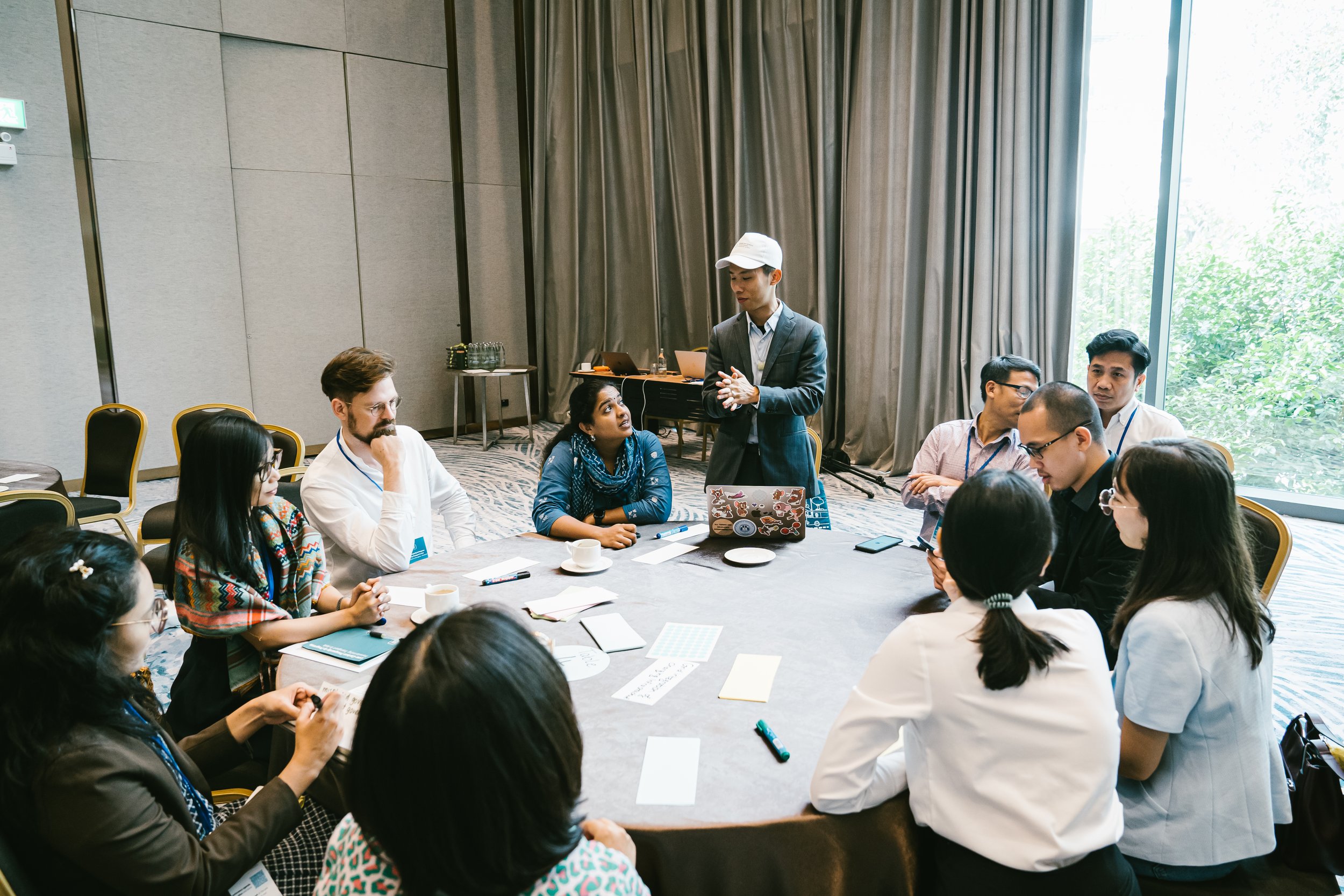
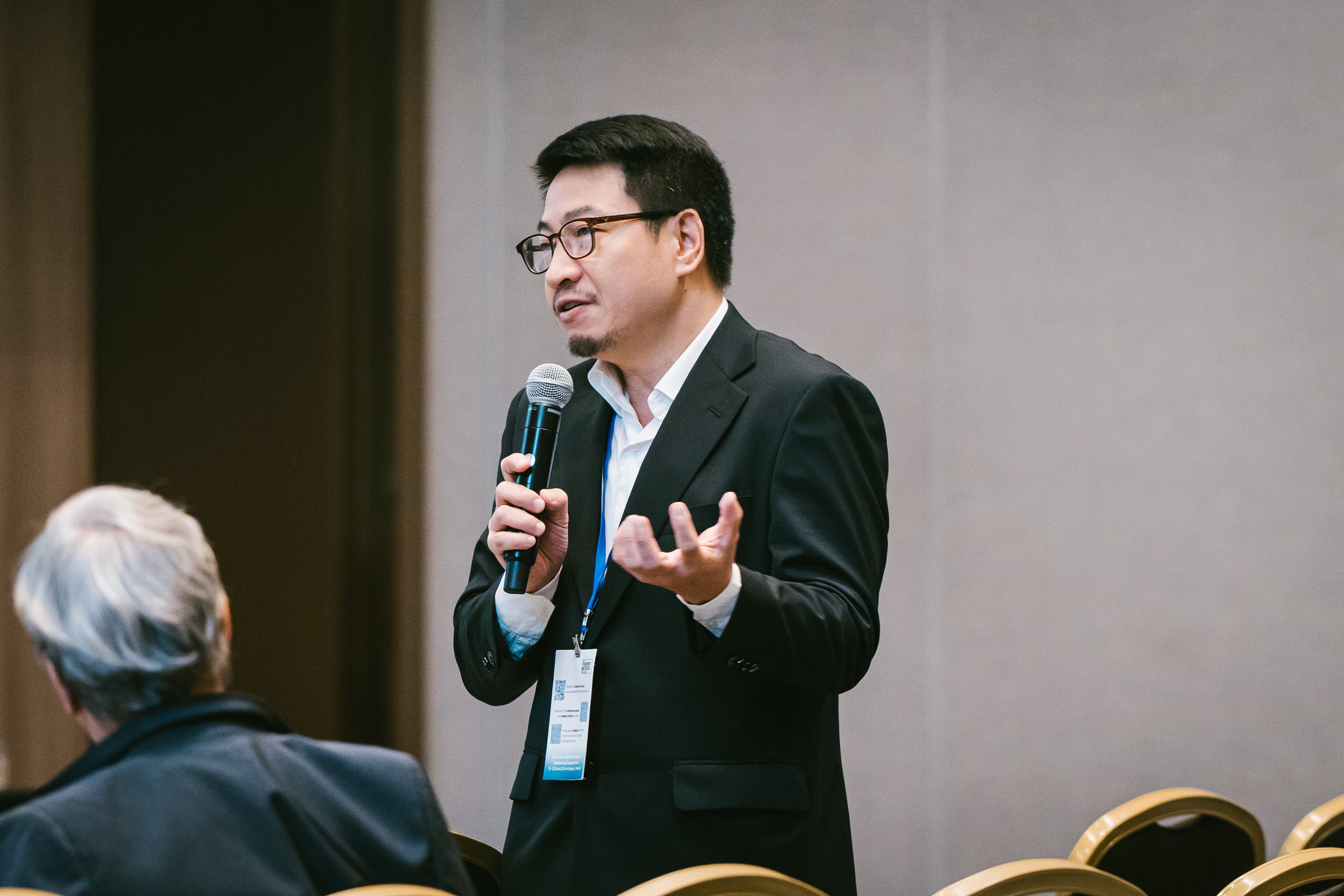

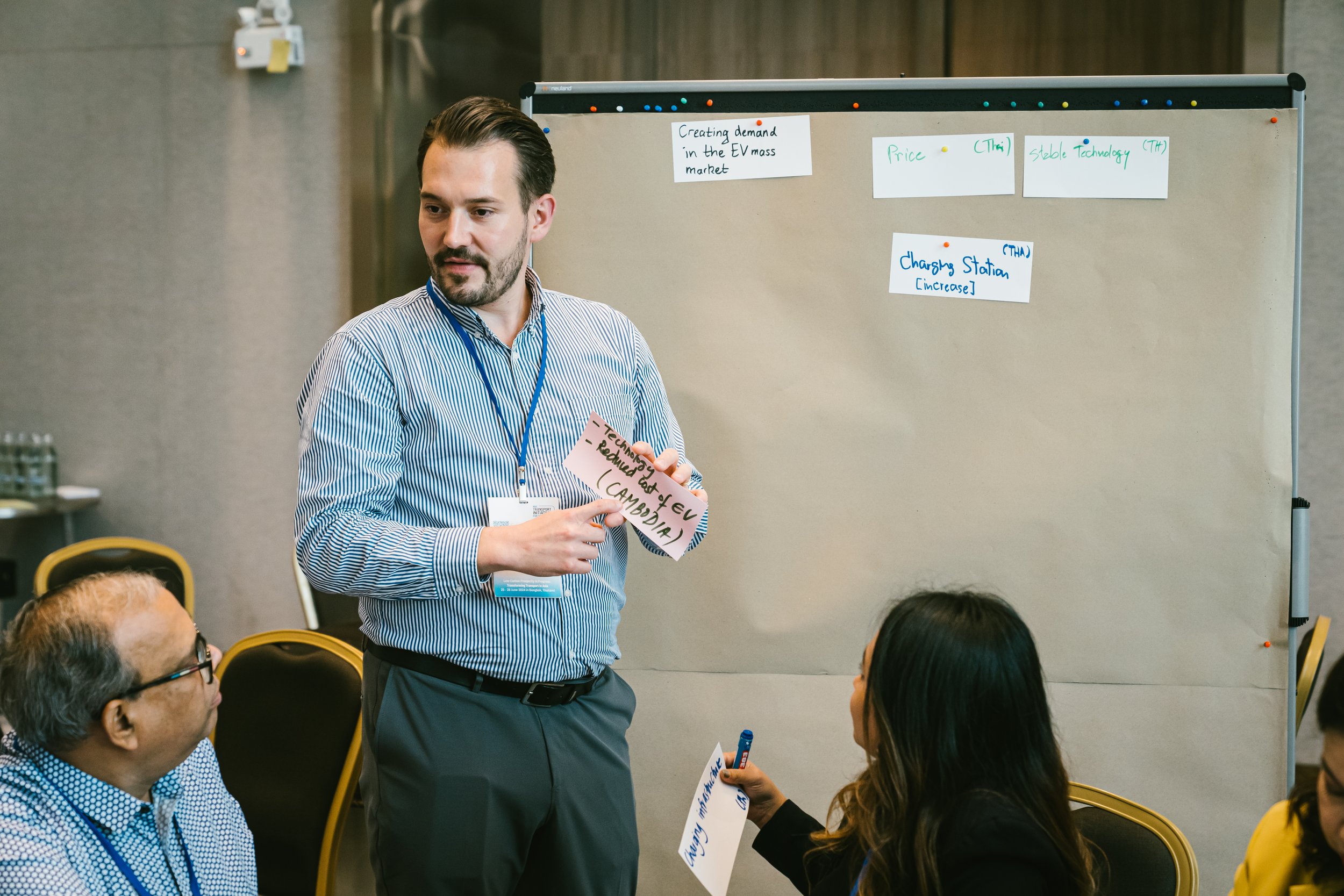
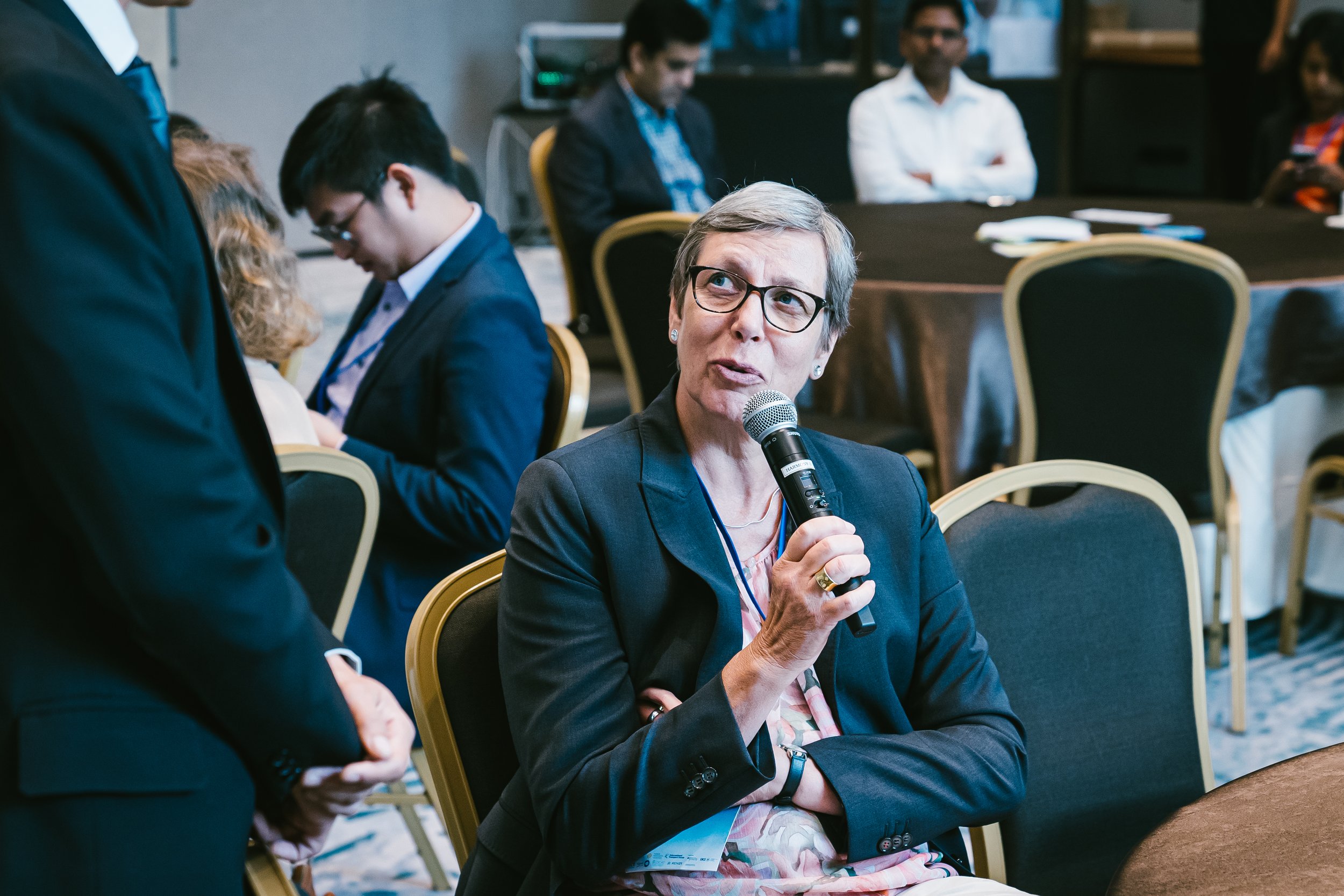
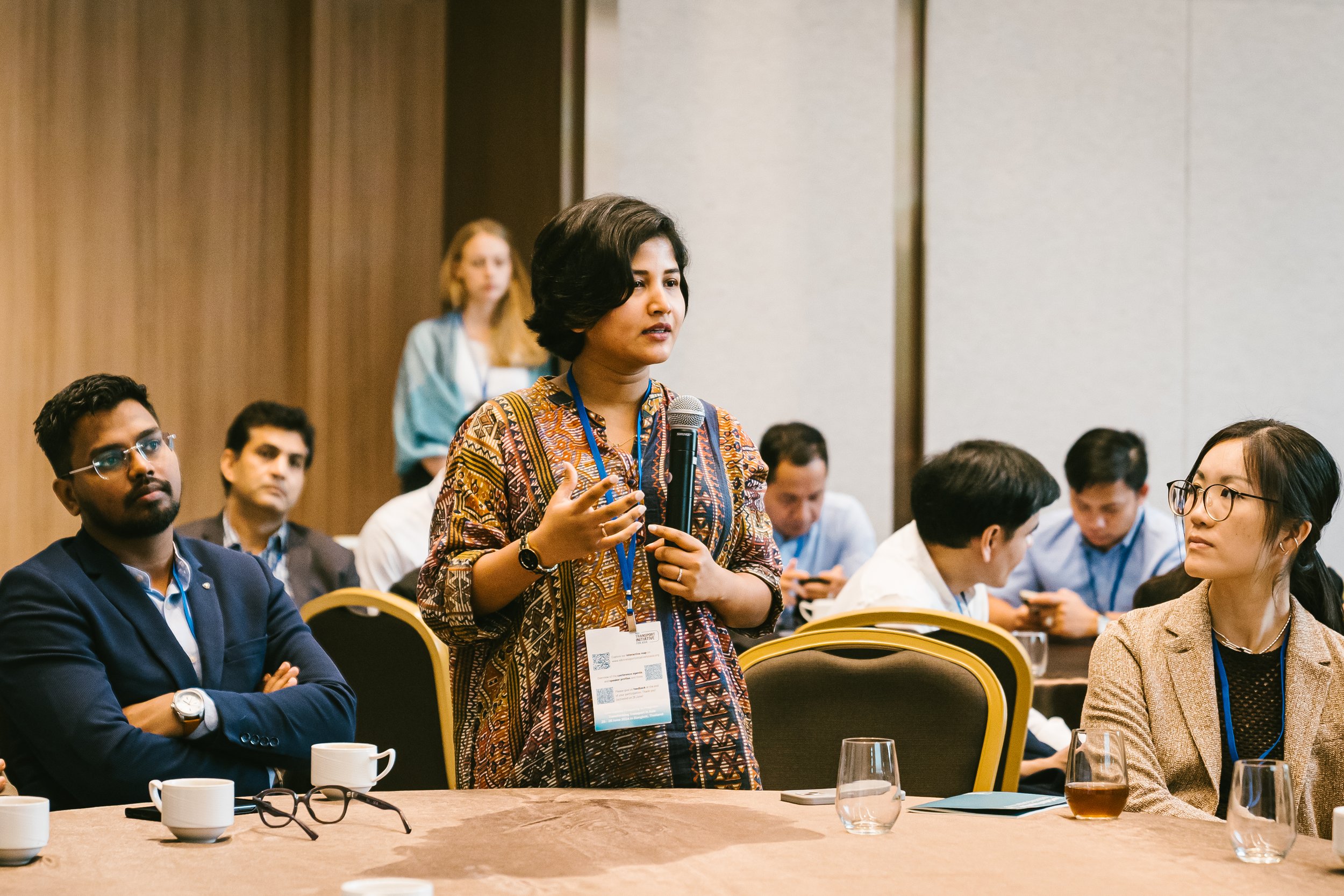
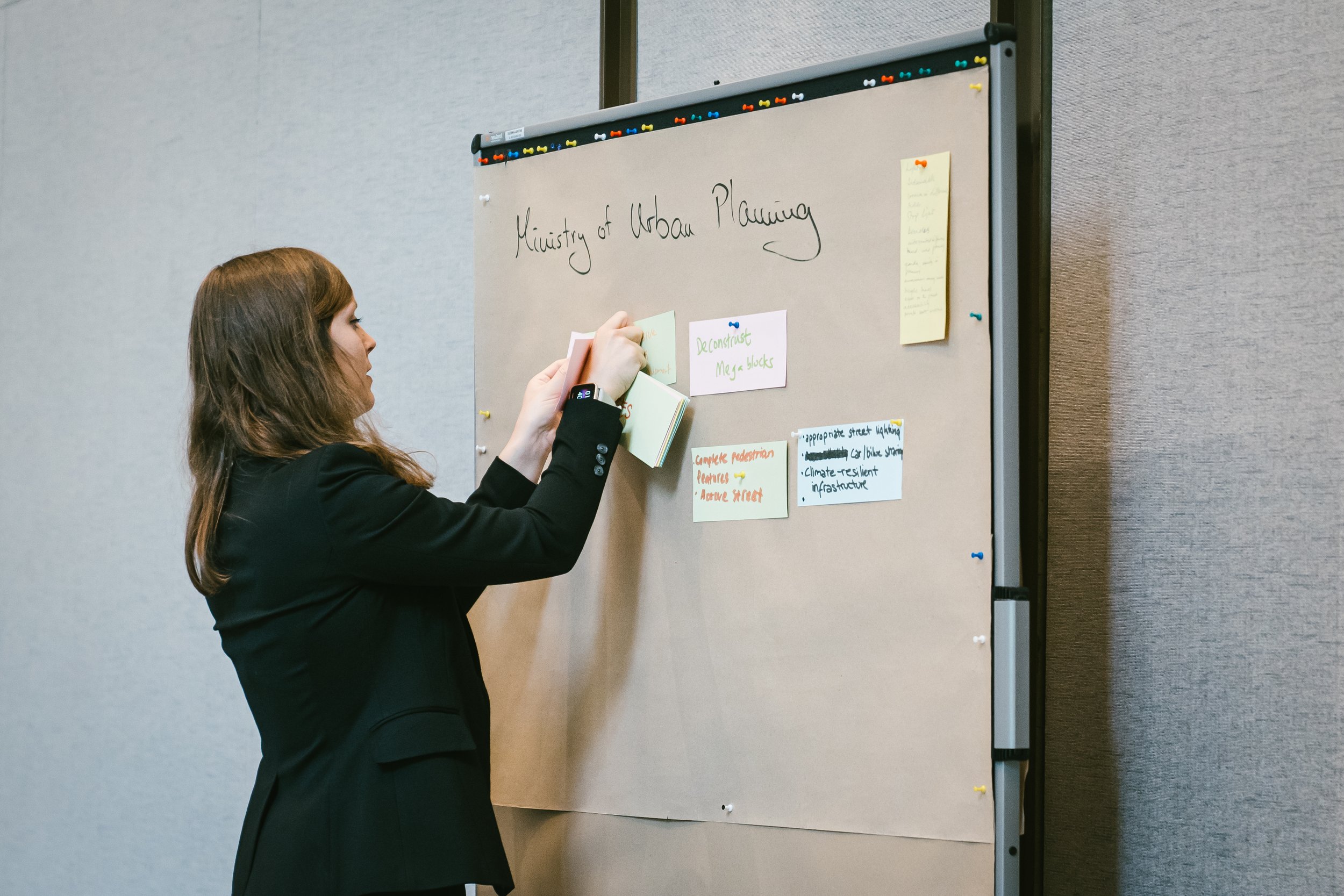
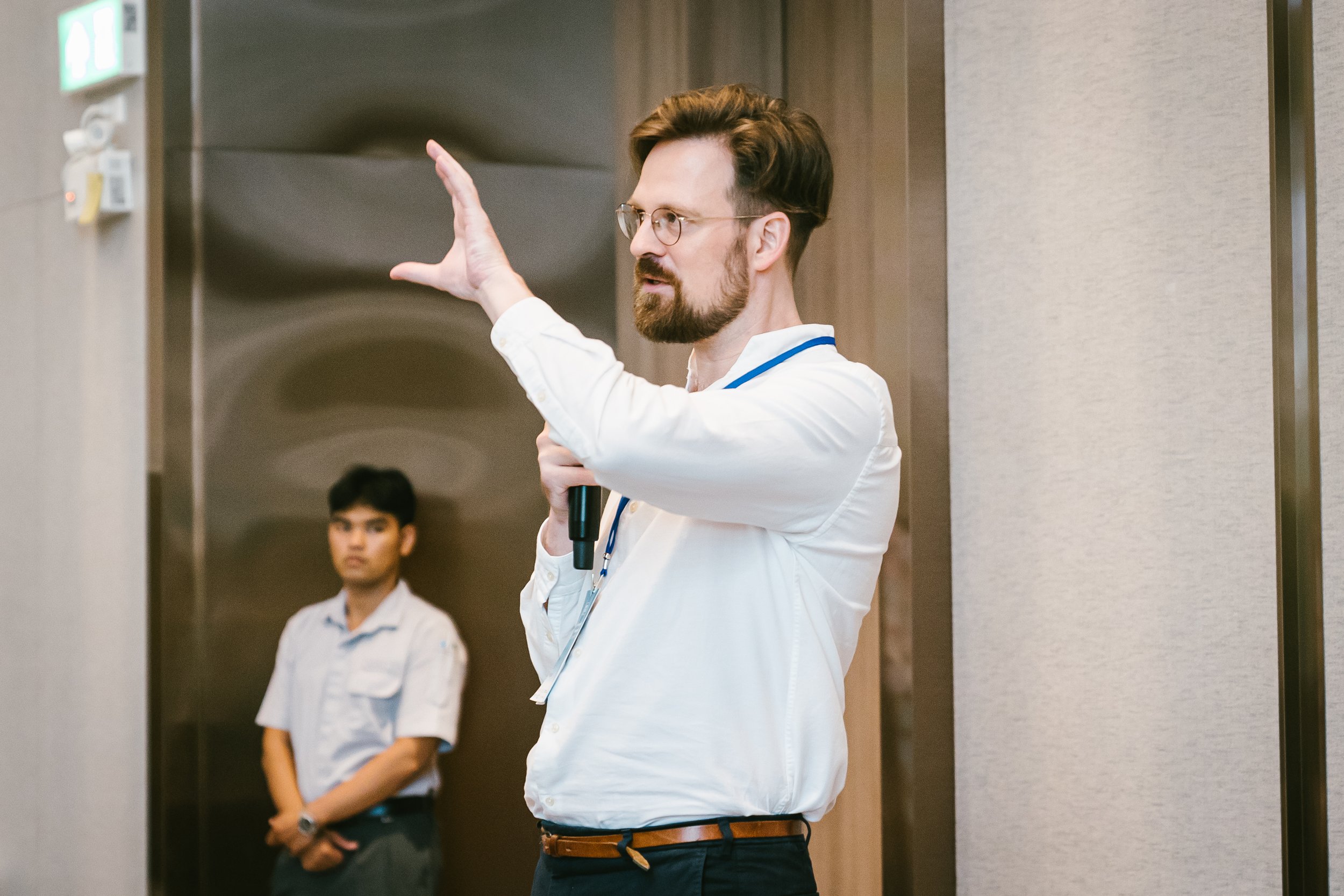
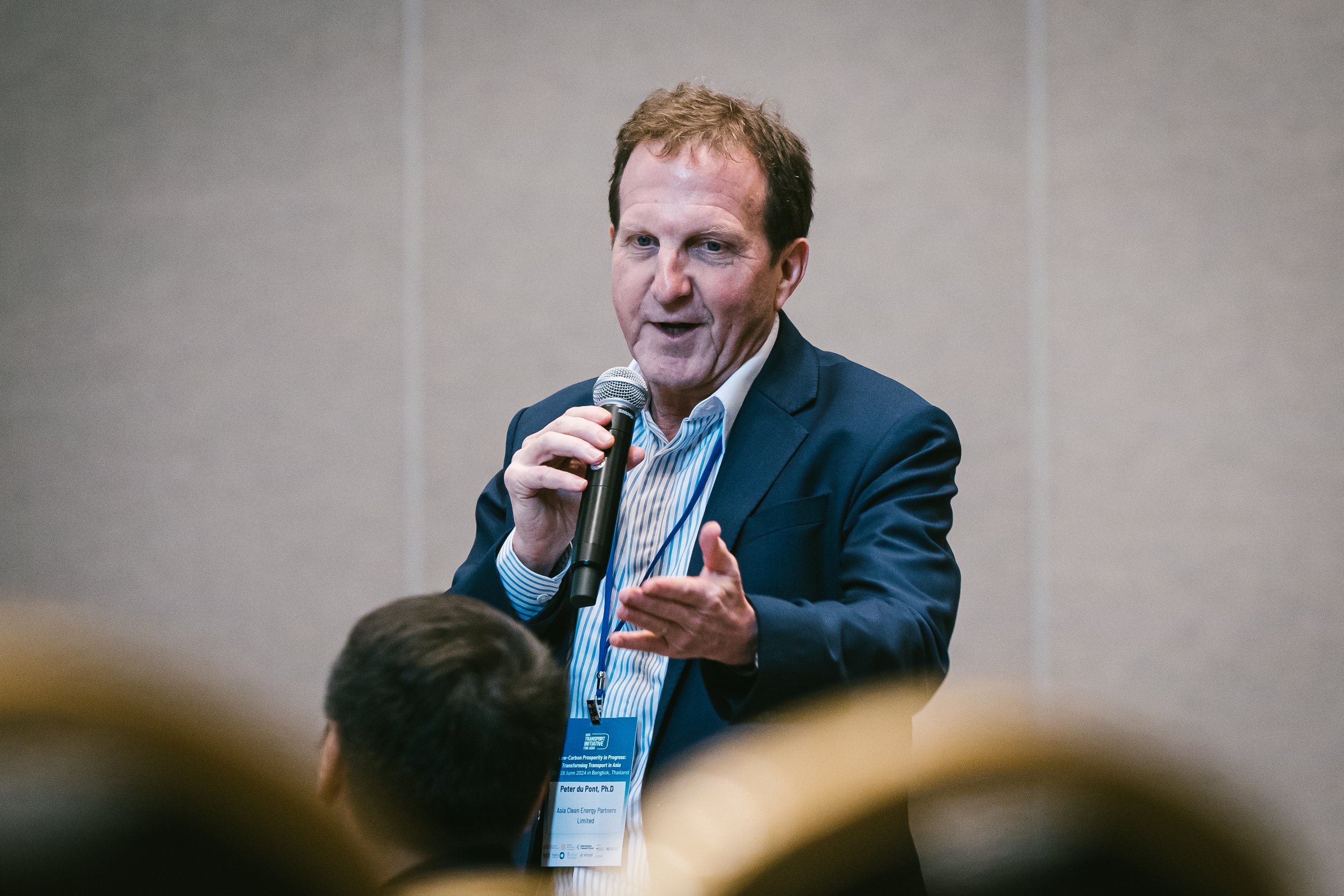
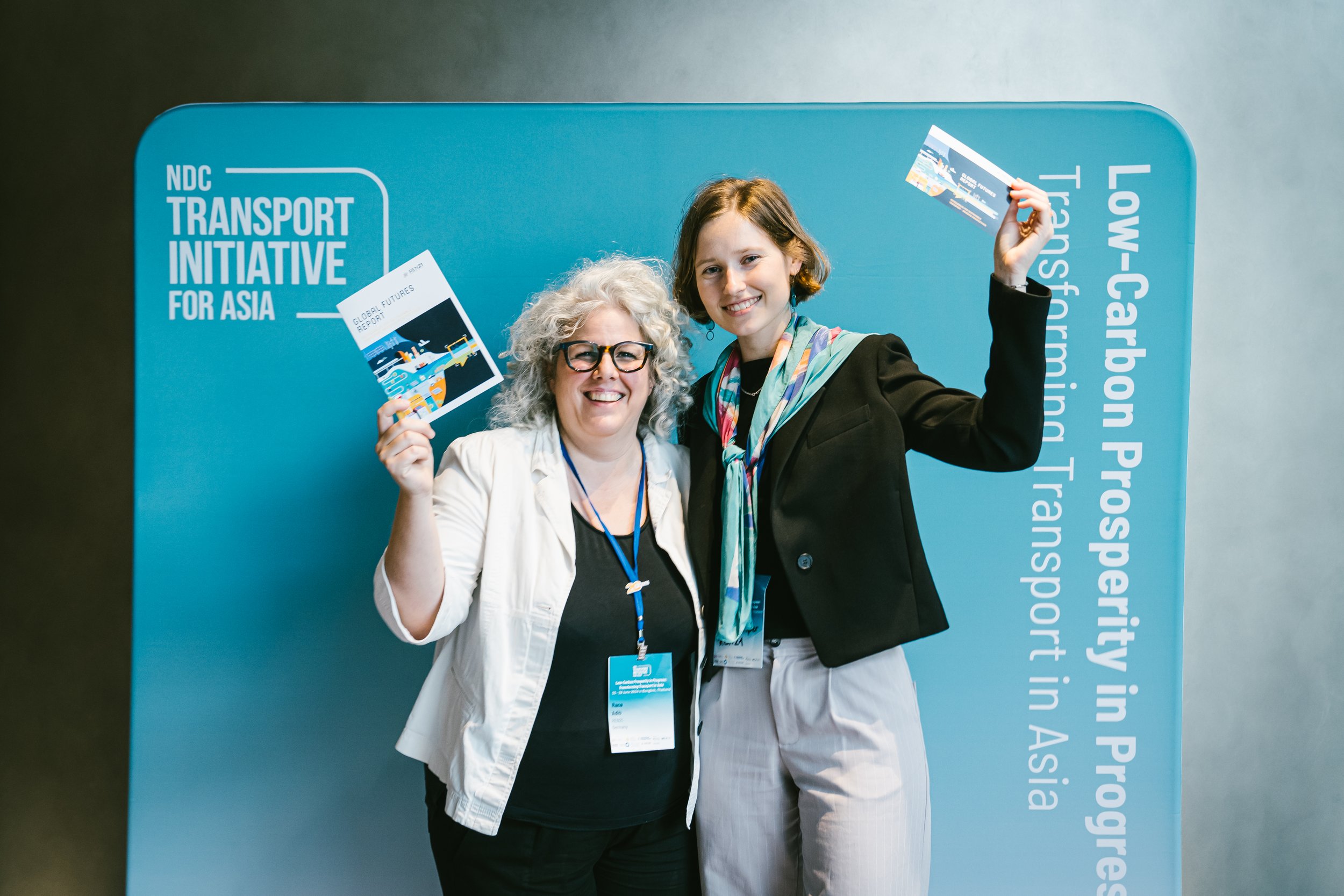
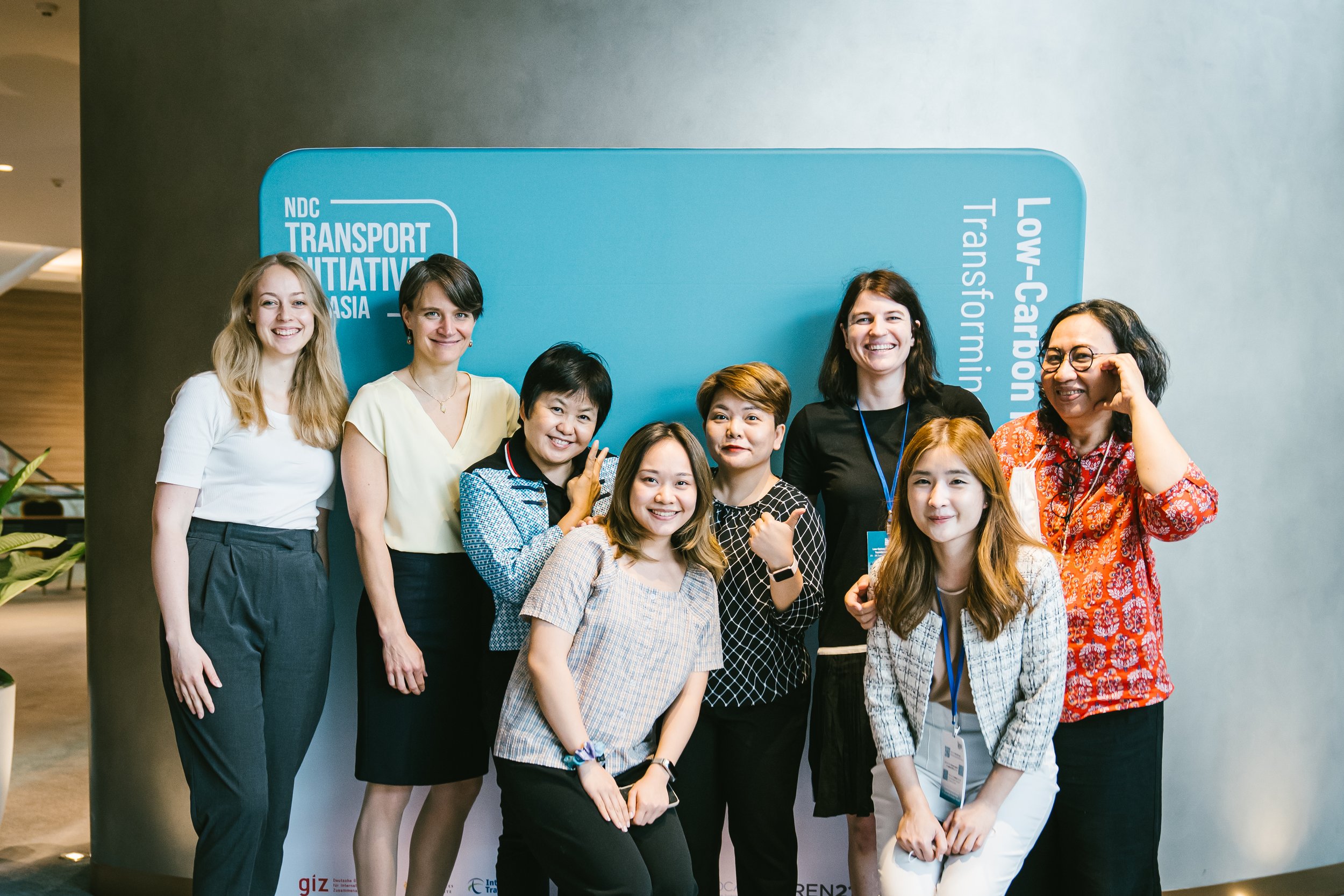
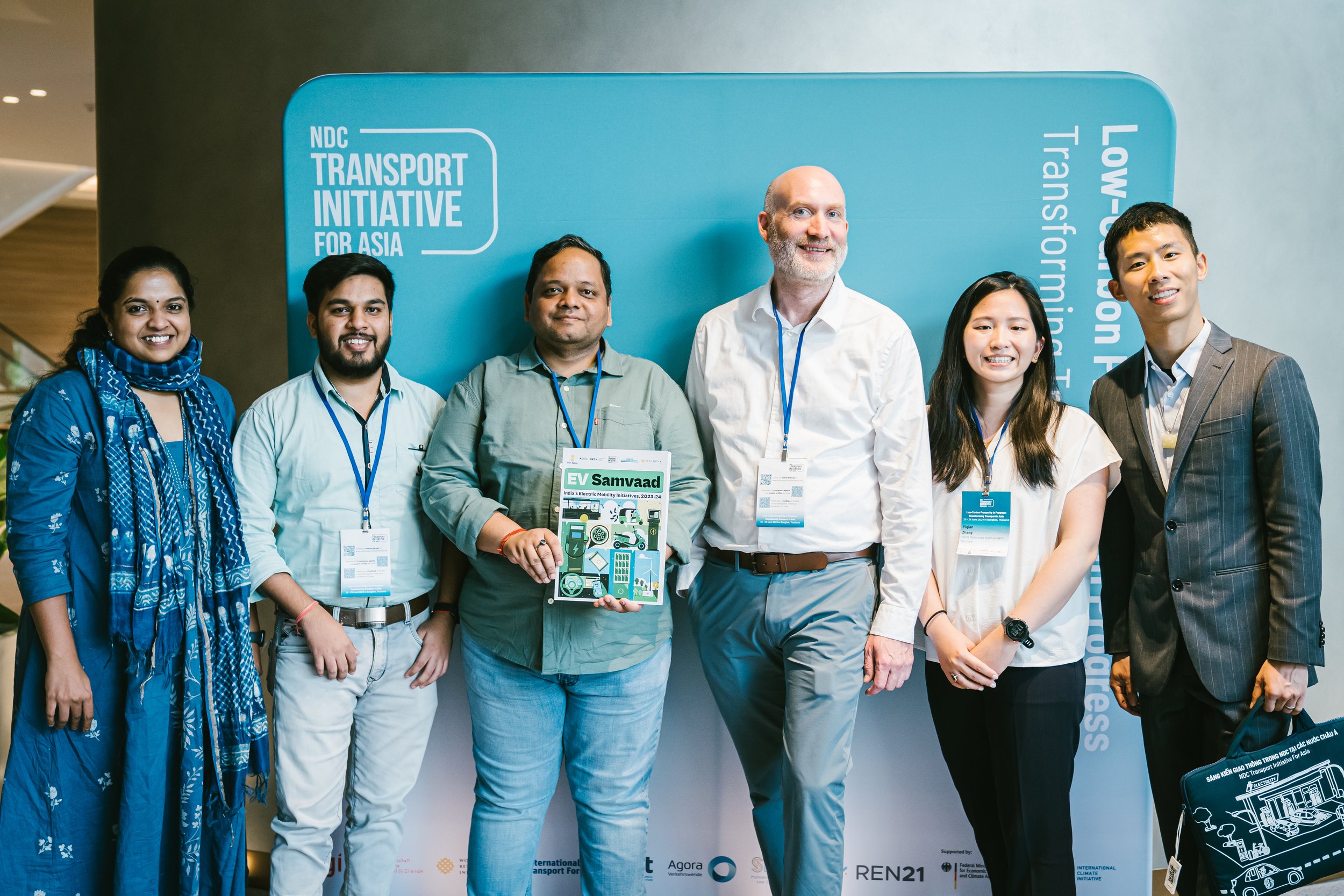
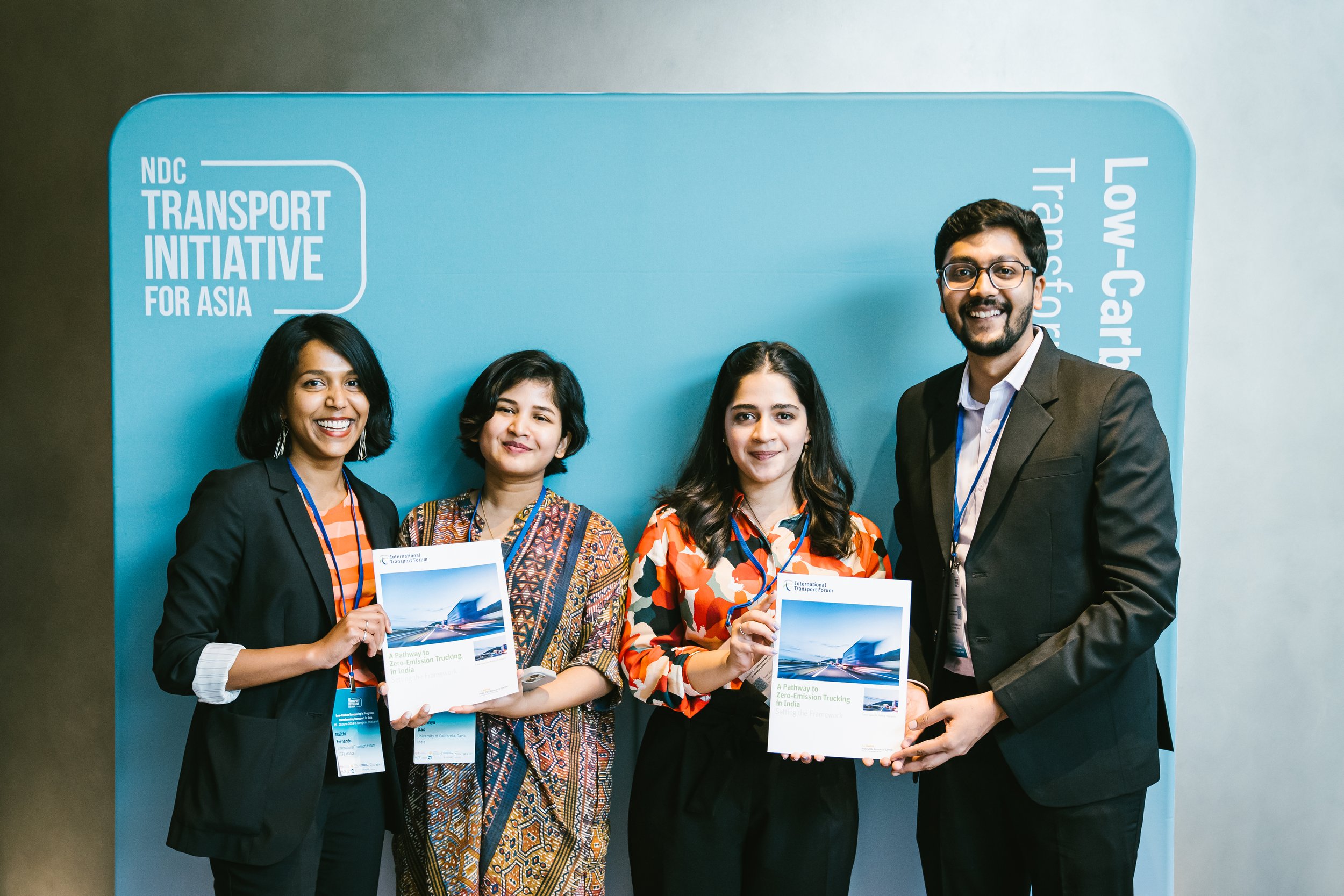
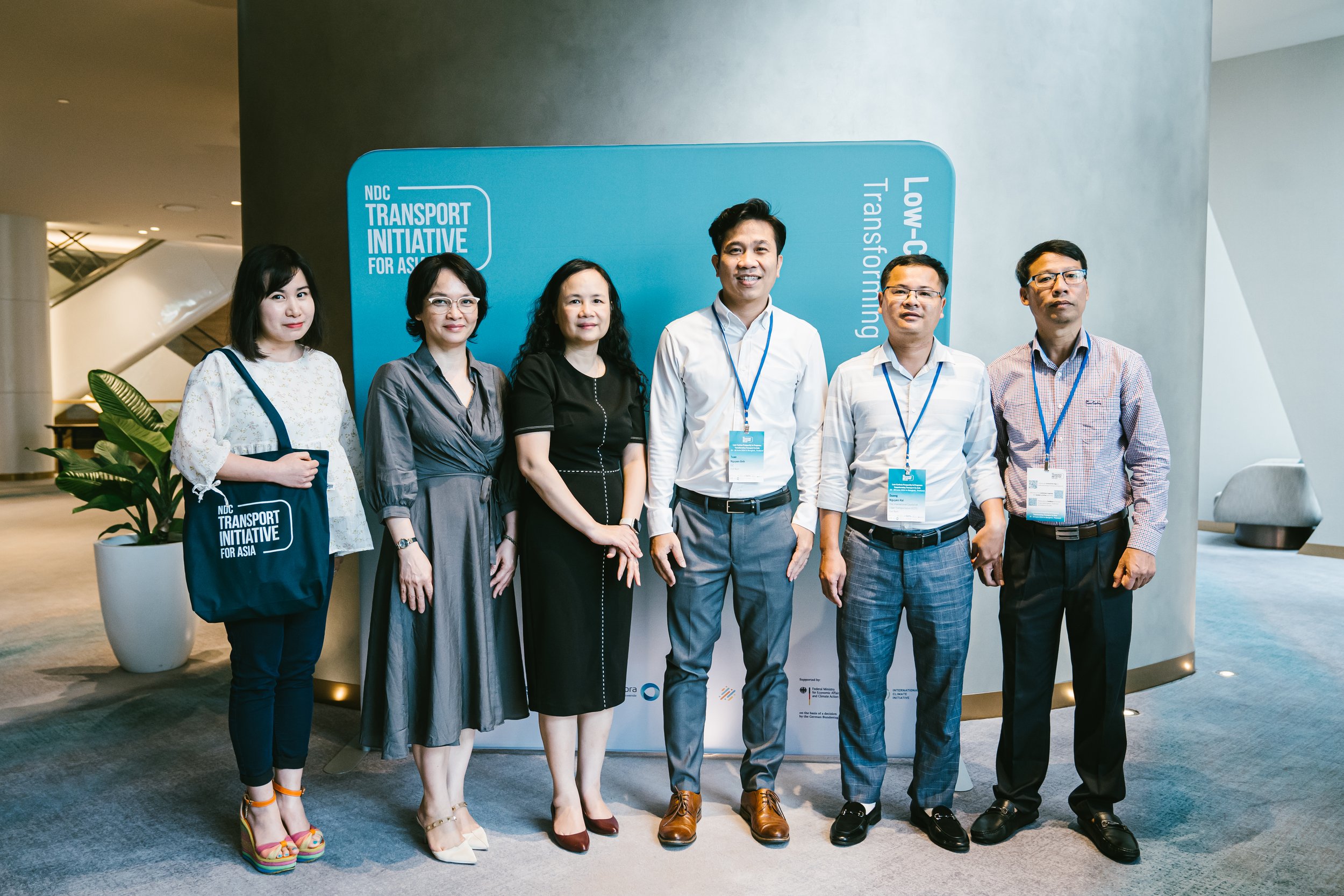
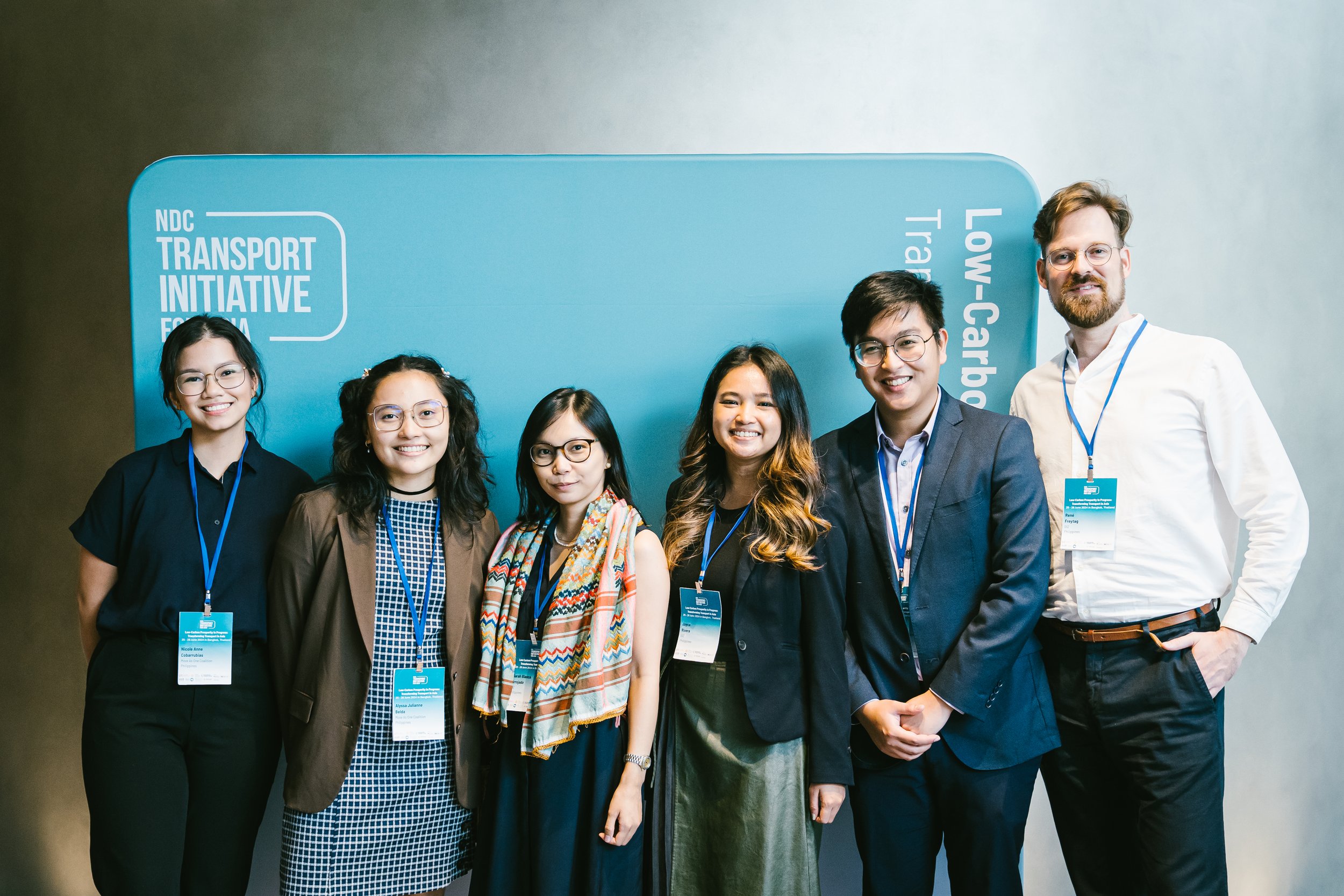
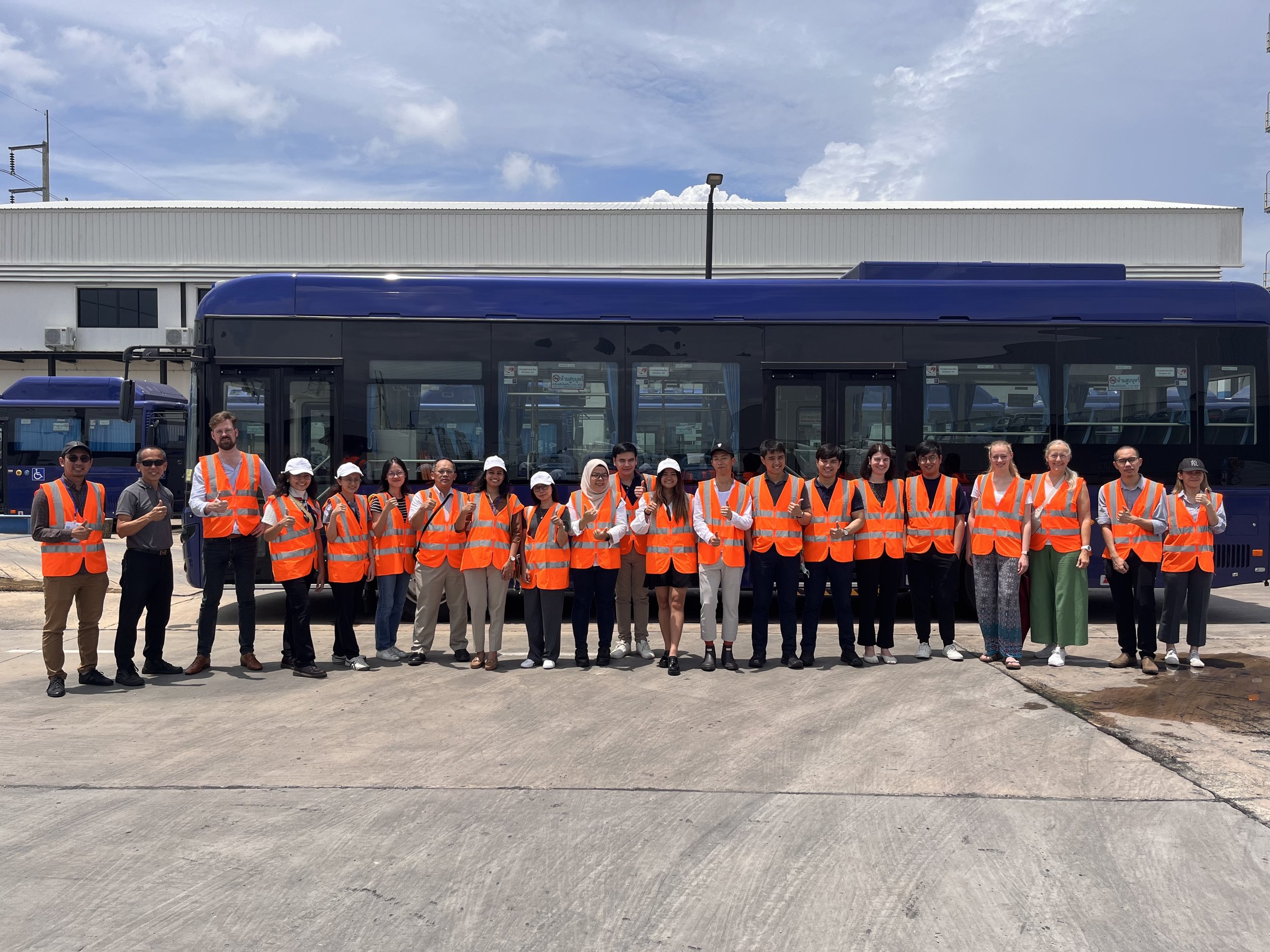
All photo credit: GIZ/Chat Dulyarat
-
Setting the stage for pivotal discussions on decarbonising transportation in Asia, the NDC TIA regional conference kicked off on 25 June with an official opening.
Hans-Ulrich Südbeck, Deputy Chief of Mission at the German Embassy, emphasised that substantial early investments in transport decarbonisation are essential for Germany to meet its climate targets cost-effectively. Dr. Punya Chupanit, Director General of the Office of Transport and Traffic Policy and Planning (OTP), provided strategic insights into the future of regional transportation.
"Travelling together, travelling clean, travelling less" – Pornphrom Vikitsreth, Advisor to the Governor of Bangkok, presented a visionary talk on highlighting Bangkok's initiatives to decentralise infrastructure projects, enhance walkability, and implement the "15-minute park policy" to reduce travel demand and increase livability. These initiatives underscore the conference's focus on urban transport policy and emission reduction targets.
High-level participants, including Dr. Chupanit, Mr. Vikitsreth, Glynda Bathan-Baterina from Clean Air Asia, and Vera Scholz from GIZ, shared their perspectives during the press corner, emphasising collaboration and innovative solutions for achieving zero-emission transport across Asia.
-
The second day centered on regional strategies and lessons learned from the NDC Transport Initiative for Asia in China, India, and Vietnam. Glynda Bathan-Baterina shared insights from the Council for Decarbonizing Transport in Asia's flagship report, outlining pathways to complete transport decarbonisation by mid-century.
Political leaders from China, India, and Vietnam showcased their successes:
- China: Advanced national emission standards, supported carbon peaking plans in Guangdong province, and proposed incentives for zero-emission trucks.
- India: Established a multi-stakeholder platform engaging over 1,800 stakeholders, and conducted technical studies to guide EV deployment and charging infrastructure.
- Vietnam: Developed an online monitoring system for the Ministry of Transport, supported national e-mobility policies, and integrated the first-ever e-mobility action plan into Ho Chi Minh City's master plan.
Sessions by GIZ Vietnam, GIZ India, WRI India, and ICCT China highlighted national regulations and regional engagement for achieving net-zero emissions. The discussions underscored the importance of NDC implementation, stakeholder engagement, and improving fuel economy standards.
-
Interactive sessions on advancing sustainable transport solutions and scaling impact, focused on key themes including gender-responsive and accessible transport systems, financial barriers to climate finance, and the necessity of overcoming transport and energy silos.
Kalpana Viswanath's keynote on the "Women on the Move" network highlighted the need for gender-responsive transport systems to make them efficient and inclusive. Discussions on climate finance emphasised the challenges small and medium transport businesses face, exacerbated by COVID-19 impacts, and the need to redirect fossil fuel subsidies towards climate solutions.
Sessions on accelerating fossil-free transport, organized by SLOCAT and REN21, stressed the importance of coordinated efforts between transport and energy sectors. The launch of REN21's Global Futures Report on renewables for sustainable transport added depth to these discussions.
-
The conference concluded with a panel discussion featuring political partners from the Philippines and India, and representatives from GIZ and REN21. Key insights included leveraging the next round of NDCs to set ambitious transport and energy targets and creating regional standards for electric mobility.
Rana Adib, Executive Director of REN21, urged transport policymakers to send clear signals on using renewable energy as a fuel source, reinforcing the conference's commitment to actionable solutions and collaborative efforts toward a sustainable future.
From strategic insights on regional transport policies and success stories from China, India, and Vietnam to interactive discussions on sustainable transport solutions, the conference highlighted the critical role of multi-sectoral engagement and policy innovation. Initiatives like Bangkok's focus on walkability, India's roadmap for zero-emission trucking, and the integration of e-mobility in Vietnam's urban planning demonstrate the transformative potential of targeted actions and strategic partnerships.
As the conference concluded, the emphasis on leveraging the next round of NDCs, setting ambitious transport and energy targets, and fostering regional standards for electric mobility became clear. The collaborative spirit and actionable insights shared at the event set a promising trajectory for sustainable and inclusive transport systems across Asia. This momentum will be crucial as the region continues to navigate the path towards decarbonisation, ensuring climate action and prosperity for future generations.
Highlights and Looking Ahead
As the conference concluded, the emphasis on leveraging the next round of NDCs, setting ambitious transport and energy targets, and fostering regional standards for electric mobility became clear. The collaborative spirit and actionable insights shared at the event set a promising trajectory for sustainable and inclusive transport systems across Asia. This momentum will be crucial as the region continues to navigate the path towards decarbonisation, ensuring climate action and prosperity for future generations.
Authors: Hannah Eberhardt; K. Zé Liu; Urda Eichhorst.


